












Welcome!
On behalf of the Utah Dental Association Convention Scientific Committee, I want to welcome you to the 2023 Utah Dental Convention. We are looking forward to seeing you once again in–person at the Salt Palace. We have put together a program with every member of your dental team in mind! In addition to the opportunity to participate in courses designed to enhance each individual’s role in the dental field, all attendees will be able to connect with other professionals and friends at the team luncheon, the scientific poster presentations, and in the exhibit hall. We can’t do this without your support, and we know you will find our convention an economical choice for your continuing education. Each person that attends will be able to take practical pearls and implement them immediately back at the office, making the time investment worthwhile.

Thank you for your participation in the 2023 UDA Convention! We appreciate all you do for our professional community and the patients we serve. Our committee members are looking forward to pursuing the common goal of service with you as we learn together. Stacey Swilling, DDS


Online ... www.uda.org
All registration must be done online
Onsite Information Desk Hours
Thursday....7:00 am–4:00 pm
Friday.........7:30 am–4:00 pm
Information is upstairs on level two near the Salt Palace east entrance.
Audience codes. A–assistant, D–dentist, H–hygienist, O–office staff, ST–students
Children. Children and babies are not allowed at any seminars or functions.
CE Certificates Following the 2023 Convention, attendees will need to complete an online survey to obtain their CE Certificates. This survey will be found on the UDA website, on the 2023 Convention Page. A separate survey will need to be completed for each course attended. www.uda.org
**New for 2023**
Dental Education Platform The Dental Education Platform will be 45–minute presentations given by vendors that are exhibiting in the exhibit hall. The platform will be located in the North–West corner of the exhibit hall. These will feature a variety of CE courses, demonstrations, and discussions. The Dental Education Platform presentations are offered on a first–come first–serve basis. Some courses will offer CE. Seating is limited.
Individual registration. Dental hygienists, dental assistants, front office, lab technicians, students can register individually or as a group.
Information and questions. email: uda@uda.org or call or text 801–261–5315.
For questions, contact the UDA at: Email: uda@uda.org Office: 801–261–5315
Exhibit Hours
Thursday....8:00 am–4:30 pm
Friday.........8:00 am–4:30 pm
Exhibits are downstairs on level one in Salt Palace exhibit hall C.
Name badges. Attendees must register for all seminars and exhibits. Replacement name badges can be replaced at the Information Desk.
No standing in the rooms or sitting on the floors. Strict Salt Lake City fire codes prohibit all attendees from standing in rooms or sitting on the floors during the seminars.
Open seating. Each year one or two seminar rooms fill up, so arrive early to assure yourself a seat.
Online handouts. Speakers that have submitted an online handout can be found on www.uda.org, approximately one week prior to convention.
Parking. There are many parking areas near the Salt Place. No parking validations are available through UDA.
Radiology Certification. Can be found online at www.uda.org Refunds. Sorry, no refunds can be made for registration, meals, or functions.
Speakers’ websites. For information about the speakers and their topics, visit the speaker’s bio pages in the back of the printed program. For additional detailed information about the speaker, visit their website. (If a website was provided by the speaker, it will be located at the end of their bio).
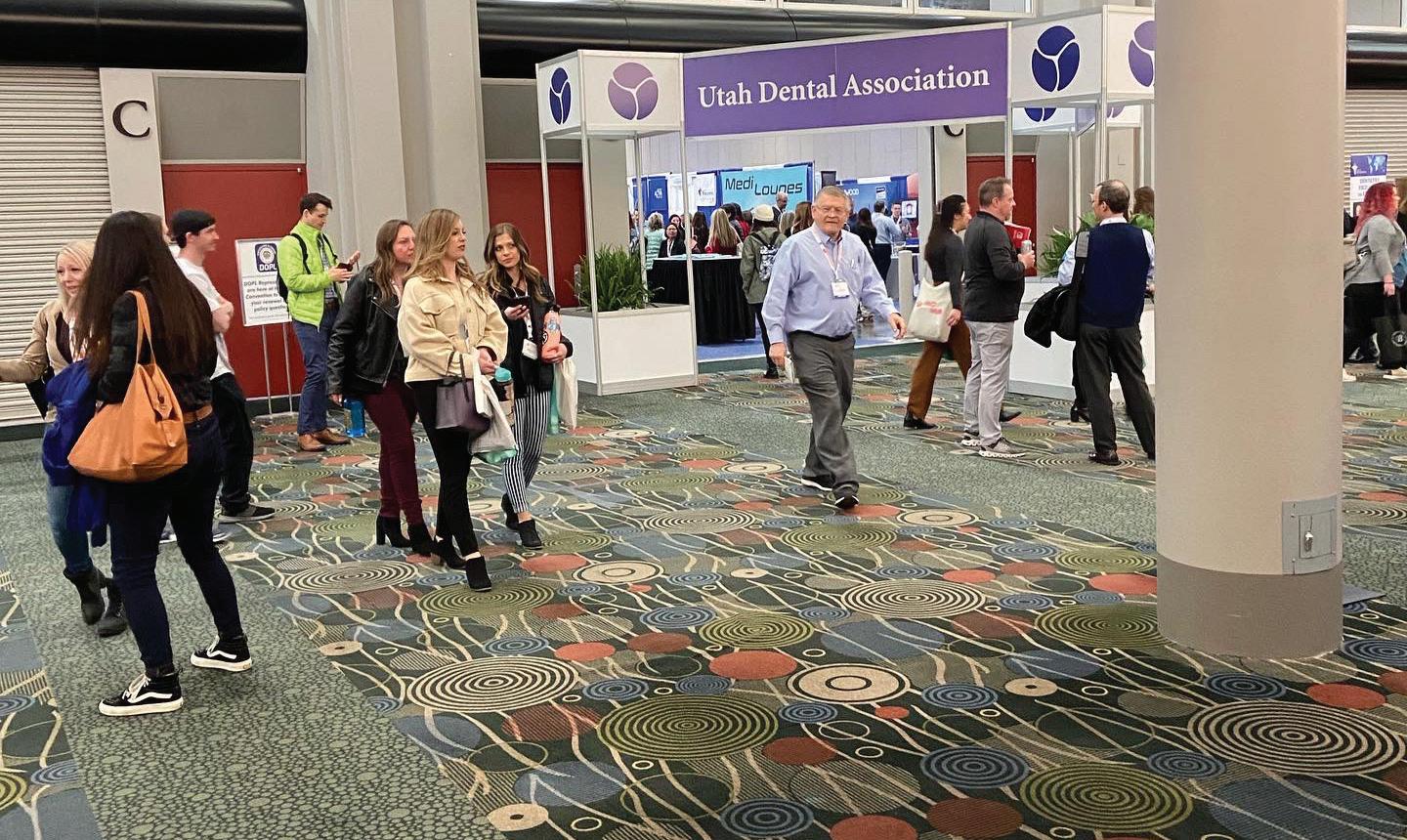
Registration fees will increase on March 4, 2023
UDA Member Dentist $95
Non–UDA Dentist $550 Out of State ADA Member $200 Spouse of Dentist $40
Fully Retired Dentist $0 Spouse of Fully Retired Dentist $0
UDA Dental Hygiene Affiliate Member $30 To join the UDA Dental Hygiene Affiliate Membership, go to: www.uda.org
Non–UDA Dental Hygiene Affiliate Member $100
Assistant $50 Office Staff $50 Lab Technician $50 Student $5 Team Luncheon $25
Hygienist Luncheon UDA Dental Hygiene Affiliate Member $25 Non–UDA Dental Hygiene Affiliate Member $50
CPR and BLS Certification Workshop $35 Hands on Workshops $25 • Anatomy Flashback: What you NOW realize you really needed to know! • Hands on Endo Workshop – Achieving New Levels of Success in Endodontic Therapy • Local Anesthesia Technique Hands on Workshop (For Hygienists) • A Mini–Residency in Pediatric Dentistry: Learning Lab • The Role of the Dental Assistant–Techniques and Technologies That Help Deliver “World Class” Dentistry–Hands on Workshop Part I • The Role of the Dental Assistant–Techniques and Technologies That Help Deliver “World Class” Dentistry–Hands on Workshop Part II All Registration Needs to be Completed online at www.uda.org
FRIDAY, MARCH 31
All Dentists that Graduated from 2013 to 2022 are Invited to Attend
March 30, 2023 3:00 pm
Located at the Dental Education Platform in the Exhibit Hall
Free to Attend
Dental students are invited to participate in any offered course at the convention and take advantage of the exhibit hall experience. In addition, the workshop below has been arranged specifically for dental students on Friday morning.
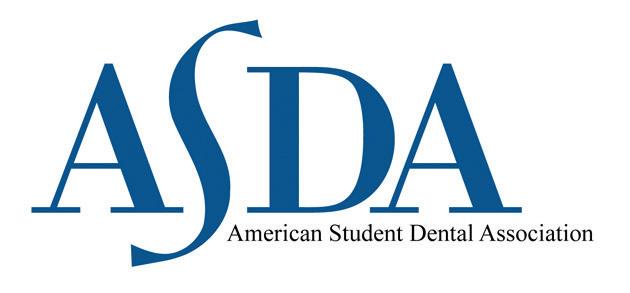
All dental students are invited.
Must pre–register.
Hands On Endodontics Workshop Sponsored by Dentsply

March 31, 2023, Session 1 8:30–9:45 am March 31, 2023, Session 2 10:15–11:30 am Room 253 A, B
Cost is $15
Participants must also register for the UDA Convention at uda.org
Registration and payment for this hands–on workshop will be facilitated through the dental school representative on the Convention Committee.
Audience codes. A–assistant, D–dentist, H–hygienist, O–office staff, ST–students
8:00 am
Pierre Fauchard Academy
7:00 am breakfast
Marriott City Creek, 75 S West Temple
For Information email: Dr Glenn Zeh drzehdds@gmail.com
It’s (Medically) Complicated! Essential Pharmacology for Treating Medically Complex Dental Patients.
Tom Viola, R.Ph, CCP
8:30–11:30 am
Ballroom: A, C
Audience: D, H
Dental professionals must frequently draw upon their knowledge of pharmacology for optimal care of today’s medically complex dental patients. However, armed with only a relatively brief exposure to such a vast subject during their formal education and faced with ever–changing medication therapy guidelines, many dental professionals simply cannot keep up with the latest trends in disease state management. This program will provide an overview of the dental implications of prescription medications, nonprescription medications, herbal products, nutritional supplements, and substances of abuse most frequently used by patients. Special emphasis will be given to delivering this essential information in a format which makes it practical and useful for all members of the dental team.
Learning Objectives:
• Identify the prescription medications most frequently encountered on a patient’s medical history and discuss their indications for use, adverse reactions, and impact on dental therapy.
• Discuss the non–prescription medications most often used by dental patients and explain their impact on dental therapy, including situations which preclude their use.
• Identify the most popular herbal products and nutritional supplements and discuss their purported uses and dental considerations.
• Identify the most common substances of abuse and describe their oral manifestations and dental treatment considerations.
Esthetic and Functional Periodontal Plastic Surgery for Masterpiece Implant Restorations & Restorative Dentistry: Understanding the Fundamentals and Beyond
Jim Grisdale, DDS
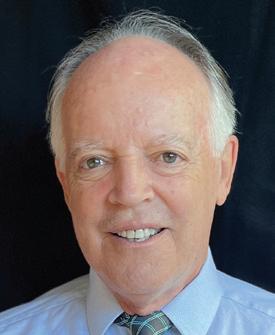
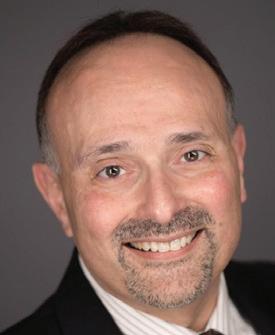
8:30–11:30 am
Room: 150 A, B, C, G
Audience: D, H
This course is designed to address the key factors that determine successful soft tissue grafting. The indications and techniques for surgical treatment based upon the need to re–establish esthetics, restore a functional
Audience codes. A–assistant, D–dentist, H–hygienist, O–office staff, ST–students
attachment, and eliminate hypersensitivity will be covered. Free gingival grafts are indicated for increasing the zone of keratinized attached tissue in sites of deficiency and for the elimination of prominent frenum pulls. This technique however has its limitations particularly with regards to donor site morbidity and unpredictable color. Today’s patients are demanding enhanced esthetic results, connective tissue grafts and alternatives have gained considerable popularity by incorporating positive features of the free gingival graft but with considerably reduced donor site morbidity and an excellent cosmetic result.
Learning Objectives:
• To correctly diagnose and treatment plan for mucogingival problems.
• The differences between free gingival grafts and connective tissue grafts.
• The different surgical techniques, sequence, and instrumentation for successful mucogingival surgery.
• Post–operative care and wound healing in periodontal plastic surgery.
Rhet Tucker, DMD
8:30–11:30 am
Room: 250 A, B, C
Audience: D
We will discuss different options that are available to enter the digital denture workflow. This includes offices that may not have any digital technology, to offices that are equipped with scanners and printers and everything in between. We will also discuss how we can continue to successfully make the traditional 5 appointment denture in fewer appointments.
Learning Objectives:
• Become familiar with the various ways to enter the digital denture workflow.
• Understand that using the digital workflow does not change the basic principles of denture fabrication.
• Learn how to effectively ‘skip steps’ in the denture fabrication process.
Barney Olsen, DDS, MS
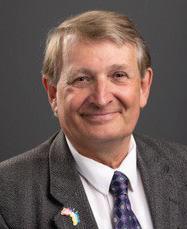
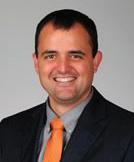
8:30–11:30 am
Room: 250 D, E, F
Audience: D, A
This interactive presentation will cover the most important topics in pediatric dentistry namely: behavioral management, anesthesia, pain control, and treatment planning. Over 95% of what pediatric dentists do, general dentists should be doing in their own offices. The tricks of the trade will be reviewed so that every office can treat and enjoy pediatric patients in their practice. We will review intra osseous anesthesia, light sedation, minimally invasive dentistry, SDF, Hall crowns, and much more. This presentation will be suitable for staff, hygienists, dentists, and students.
Learning Objectives:
• Learn how and where to use intra osseous anesthesia.
• Lean why special needs patients should be treated in your office.
• Lean how and when to use Hall Crowns without anesthesia.
Audience codes. A–assistant, D–dentist, H–hygienist, O–office staff, ST–students

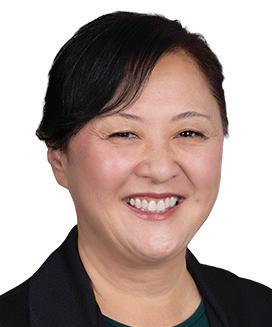
Jinny Bender, DMD
8:30–11:30 am (continues at 2:00)
Room: 251 D, E, F
Audience: D, A
In this course, attendees learn to incorporate digital dentistry into their practice practically and profitably. Prepare to embrace the digital workflow while scanning, designing, and milling in–office chairside restorations using a modern CAD/CAM system. Additional topics will include material selection, preparation, final finish, and cementation.
Learning Objectives:
• Review the benefits and techniques for digitizing the clinical workflow.
• Make material choices based on their indications for a CAD/CAM system.
• Learn how to produce quality restorations in a single visit.
Reid Pullen, DDS

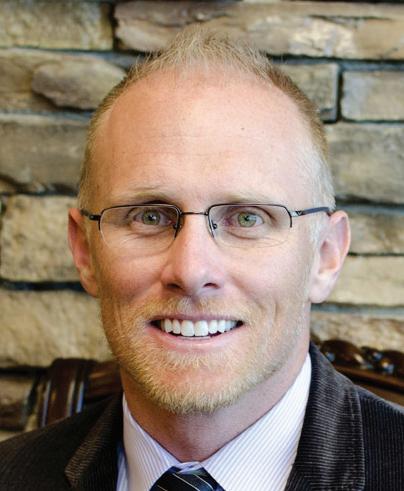
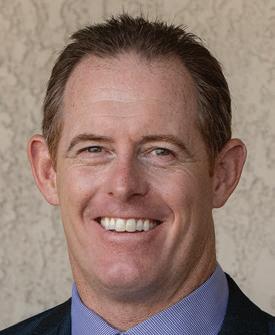
8:30–11:30 am
Room: 251 A, B, C
Audience: D
From diagnosing and establishing your endo treatment plan to achieving a dense, three–dimensional fill, you’ll learn modern, step–by–step procedures for everyday use. You will also learn how to safely and efficiently maneuver around challenging curves to create an ideal glide path, when to use more complex techniques and how to avoid post–treatment disease. Take your practice to the next level with core concepts from a fresh perspective by learning how to successfully perform modern, basic techniques and why they are important.
Learning Objectives:
• Diagnosis and Treatment Planning, Case Selection.
• Endo Prep and Anesthesia Tips.
• Creating Endodontic Access, Opening the Glide Path.
• Rotary/Reciprocation Instrumentation.
• Canal Disinfection Irrigation, Successful Obturation.
Nick Egbert, DDS, MDS
8:30–11:30 am (continues at 2:00)
Room 151 G
Audience: D
Patient–centric, evidence–based, accelerated treatment protocols improve both short and long–term outcomes. Application to common implant treatment modalities in general dentistry will be discussed including single tooth, multi–unit and full–arch removeable and fixed treatment applications. Treatment planning strategies and technological tools to reduce time, stress, and cost for both the patient and clinician will be demonstrated. Excellent
Audience codes. A–assistant, D–dentist, H–hygienist, O–office staff, ST–students
outcomes ultimately increase both patient and doctor satisfaction, elevating the standard of care.
Learning Objectives:
• Properly diagnose patient candidates for accelerated implant therapy.
• Efficiently treatment plan implant therapy with proper ADA procedural codes.
• Understand surgical techniques that increase success with accelerated implant therapy.
• Understand the most predictable and efficient prosthetic techniques.
Enrique Varela, DDS
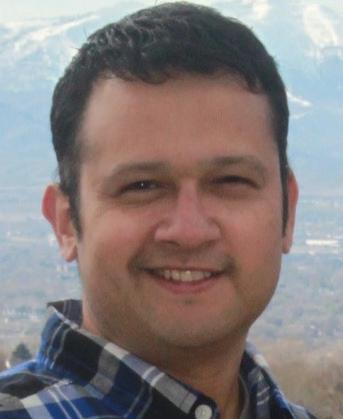
Time: 8:30–11:30 am
Ballroom: B
Audience: H
Local anesthesia and nitrous oxide are important elements of dental practice and form the basis of pain and anxiety management. Proper administration and use of these elements can help improve provider confidence and patient satisfaction. This course will review important concepts related to local anesthesia and nitrous oxide use in dentistry, while also reviewing important state regulatory information.
Learning Objectives:
• Describe how pain and anxiety are managed through the use of local anesthesia and nitrous oxide.
• Describe patient factors that may require modifications to the use of local anesthesia and nitrous oxide.
• List and describe elements that should be documented in order to fulfill medicolegal obligation.
• Review Utah permit classes for dentists and dental hygienists and know the requirements for each.
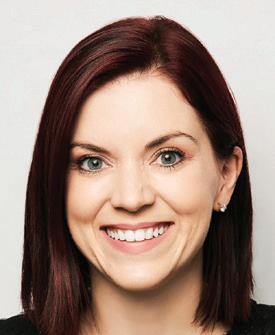
Amber Auger, RDH, MPH
8:30–11:30 am
Ballroom: D, F
Audience: H
Over the last ten years, there has been a focus on the oral and systemic health link. This course is designed to equip dental hygienists with the skills to implement a comprehensive approach to treating our patients while they are chairside. This course will review risk assessments and clinical cases to provide a practical approach to implementing science–based literature that is both effective and feasible for the current demands in practices.
Learning Objectives:
• Review Oral Pathologies that show evidence of systemic health issues.
• Identify how to implement Salivary Testing.
• Discover proper risk assessments for enhanced preventive oral health.
• Investigate the latest technologies to prevent and treat both hard and soft tissue disease.
Audience codes. A–assistant, D–dentist, H–hygienist, O–office staff, ST–students
Anatomy Flashback: What you NOW realize you really needed to know! Hands on Workshop

Limited to 20 participants
Cost: $25 must register at www.uda.org
Wayne Cottam, DMD, MS
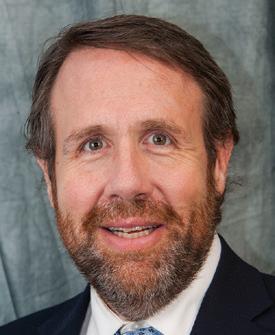
8:30–10:30 am, repeats at 2:00
Room: 151 A, B, C
Audience: D
This course will review important relevant head and neck anatomy critical for accomplishing common procedures and therapies in dental practices. This fast–paced session will include hands on, active learning with high quality artificial skulls and interactive activities and learning. Topics will include: a review of innervation and blood supply to the oral cavity; a review of the relevant anatomy related to anesthetic injections; attachments, actions, and innervation of the muscles of mastication; basic TMJ anatomy and relevant anatomy of the floor of the mouth, tongue, palate and paranasal sinuses.
Learning Objectives:
• Describe the origin and course of the blood supply and innervation to the bone, gingiva and teeth of the mandible and maxilla, the tongue and palate.
• Describe the attachments and actions of all 5 of the muscles of mastication.
• Describe the functional anatomy of the TMJ.
• Describe the surgical anatomy of the floor of the mouth.
Audience codes. A–assistant, D–dentist, H–hygienist, O–office staff, ST–students

Shannon Pace Brinker, CDA
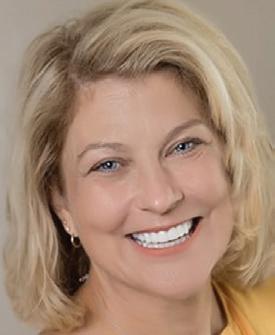
8:30–11:30 am (continues at 2:00)
Ballroom E, G, I
Audience: A
With the myriad of esthetic dental materials and techniques available today, dental assistants need to be more familiar than ever with all aspects of clinical practice. Understanding treatment goals and unique treatment considerations is essential to obtaining the desired outcome. Both contribute before, during, and after the treatment delivery to foreseeing potential complications and making the process predictable. Achieving highly satisfying results should be the goal of everyone in the office, as well as the patient. This interactive lecture gives your team valuable perspectives from both sides of the chair.
Learning Objectives:
• Discuss new technologies in dentistry that can be utilized by the dental team: cad cam dentistry, digital impressions, computerized shade devices, and computerized bite analysis.

• Learn how exquisite provisional restorations serve as an anatomic (functional) and esthetic blueprint for the laboratory and lab communications.
• Know what constitutes a perfect master impression: Hemostatic solutions, cord selection, and laser.
• Learn cementation techniques–Which cements for which materials? Single to multiple–unit placement.

Larry Guzzardo, BSBA
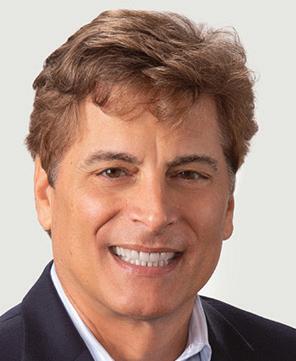
Time: 8:30–11:30 am
Ballroom: H, J
Audience: F, D
Broken and cancelled appointments are an expensive drain on your practice. Stop losing money, wasting time spent changing appointments, and the frustration created by “filling holes”. Learning to overcome this handicap you’ll enjoy less stress, and everyone will have more fun!
Learning Objectives:
• Develop verbal skills to keep patients from making last minute changes and cancellations.
• Prevent “no–show” appointments and determine the real cause of broken appointments.
• Educate patients to respect their “reserved” time and re–educate existing patients.

Paul Lowry, MBA
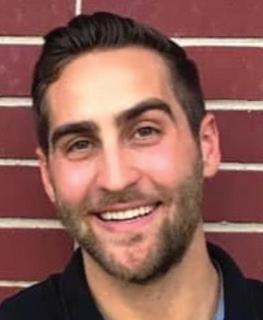
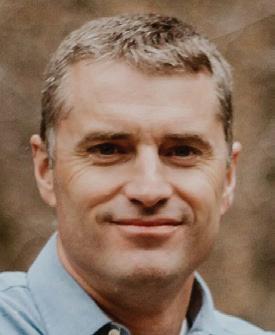
9:00–10:00 am
Room: 254
Audience: D, F
If you have been thinking of starting a membership plan, or want to improve your current one, this course is for you. Learn best practices and gain insights on how to attract and retain the next generation of fee for service (FFS) patients using a membership plan.
Learning Objectives: • How to make your membership plan more desirable for patients • How to get your team to support, sell, and administer your plans effectively • Is your membership plan really building your practice, or are you just discounting treatment?
• The 6 steps in the Dental Marketing Process and where your membership plan fits

James Dahle, MD
10:30–11:30 am Room: 254 Audience: D
In this presentation, Dr. Dahle, a practicing emergency physician and the founder of The White Coat Investor, (the most widely known physician specific personal finance and investing blog and podcast in the world) will share a basic framework and specific, actionable pearls to help you.
Learning Objectives: • Understand the connection between Financial Stress and Burnout. • Protect your most valuable asset and your loved ones from financial catastrophe.
• Build a nest egg, lower your taxes, make smart investments, and reach financial independence.
CPR and BLS Certification Workshop
Limited to 30 participants
Cost $35, must register at www.uda.org
Gabriel Cowley
9:00–11:00 am (repeats at 2:00 pm)
Room 151 D, E, F
Complete your basic lifesaving, BLS certification which is required every two years for licensure, for you and your staff while at the convention. This course will provide current information and hands–on training using the most up–to–date guidelines, CPR training simulators and automated external defibrillators. Receive your BLS certification card upon completion.
Learning Objectives: •
Adult and pediatric CPR, 30 compressions: 2 rescue breaths. • Two–rescuer scenarios and use of the bag mask. • Foreign–body airway obstruction. • Automated external defibrillation.
Audience codes. A–assistant, D–dentist, H–hygienist, O–office staff, ST–students
Noon–1:45 pm
Marriott City Creek Hotel 75 S West Temple
Admission by ticket only Cost $25 per person, must pre–register at www.uda.org
John Bytheway, BS, MA

Life is never easy. But some of the hardest situations in life can bring positive results when approached with the right attitude. We’ll talk about a three–word formula for creating perspective, and how to deal with others on your team with respect and optimism to bring out the best they have to offer. Expect to laugh. Outloud! A lot. And to learn a thing or two along the way. Seating for the team luncheon is assigned when you register. Group tickets must be purchased together so you can be seated in the same area. There are 10 seats per table. Tickets with table numbers will be mailed to you with your name badges. There are no refunds or changing of tables after tickets are mailed from UDA.
Hurts So…Swell! Management of Dental Pain and Appropriate Opioid Prescribing Practices.
Tom Viola, R.Ph, CCP
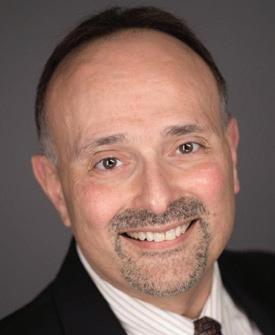
2:00–4:00 pm
Ballroom A, C
Audience: D, H
This course will fulfill the DOPL 2 hour CE Controlled Substance course requirement for license renewal
Management of acute odontogenic pain is best accomplished through a clinical approach that successfully incorporates both opioid and nonopioid analgesics. It is critical for dental clinicians to not only employ appropriate prescribing practices when utilizing opioid and non–opioid analgesics to treat pain but to also apply best practices when assessing pain control and educating patients on opioid–associated risks and opioid safety. This program will provide an overview of techniques for effectively assessing and managing dental pain, appropriately prescribing analgesics, educating patients on adverse effects and proper handling of opioid medications, as well as strategies for identifying patients at risk for substance abuse, and counseling patients on agents used in the management and treatment of opioid use disorder.
Learning Objectives:
• Describe the pharmacology and mechanism of action of opioid and non–opioid analgesics.
• Explain the intended role of opioid and nonopioid analgesics in the management of acute dental pain, as well as situations which may preclude their use, based on a patient’s underlying medical conditions.
• Discuss appropriate prescribing practices for opioid analgesics to utilize in everyday clinical situations.
• Describe techniques useful in developing individualized pain management plans as well as strategies useful in identifying potential opioid addiction and counseling on treatments.
Audience codes. A–assistant, D–dentist, H–hygienist, O–office staff, ST–students
How Do I Choose the Most Effective Periodontal and Peri–implant Treatment for My Patients? Maintenance, Repair or Regeneration? How, When and Why?
Jim Grisdale, DDS

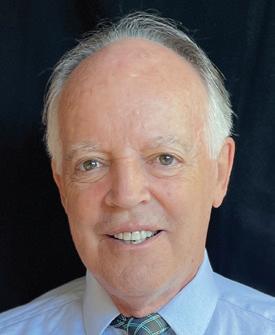
2:00–4:00 pm
Room: 150 A, B, C, G
Audience: D, H
This course will provide you with evidence–based science for choosing the appropriate periodontal and peri–implant treatment for your patients. New and evolving treatments will be introduced. Improved strategies and protocols will provide you with the tools to maximize the opportunity to resolve your patients periodontal and implant related disease and provide them with optimal care.
Learning Objectives:
• Make an informed decision which periodontal conditions are indicated for maintenance, repair, or regeneration therapy.
• Diagnose peri–implant diseases and choose the most effective treatment regimen.
• Differentiate between repair and regenerative protocols and expected outcomes.
• Compare and contrast new, evolving treatments with current treatment philosophies.
• Apply new strategies and treatment protocols to achieve optimal results.
Let’s call it what it is...Erosion or Bruxism?
Rhet Tucker, DMD
Time: 2:00–4:00 pm Room: 250 A, B, C
Audience: D
From the early days in my career, patients have been referred to my practice for bruxism. The majority of these patients present with tooth destruction that has been misdiagnosed for years. We will discuss the different types of tooth destruction, controversies with the nomenclature, and the prevalence and signs of GERD.
Learning Objectives:
• Identify the differences between erosive lesions and bruxing lesions.
• Know the difference in the literature for erosion.
• Understand the associated conditions and proper medical referrals associated with different erosive conditions.
Audience codes. A–assistant, D–dentist, H–hygienist, O–office staff, ST–students


Jinny Bender, DMD
2:00–4:00 pm (continued from morning)
Room: 251 D, E, F
Audience: D, A
Danielle Wingrove, DDS
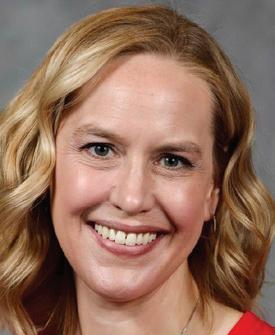
2:00–4:00 pm
Room: 251 A, B, C
Audience: D
Traditionally the inflamed pulp was thought incapable of healing, but recent advances in biologic understanding and techniques has brought this thought into question. Can a pulp that has been diagnosed as “irreversible pulpitis” have the capacity to heal? Can a patient’s own stem cells be used to restore some physiologic functions thought to be lost due to partial or complete pulp necrosis? Are there alternatives to traditional root canal treatment? To answer these questions, one must understand the pulp–dentin complex and its reaction to insults. This lecture will present evidence about the advances in the management of the vital pulp and alternatives to managing an immature tooth.
Learning Objectives:
• Recognize physiologic and structural characteristics of the dentin–pulp complex and how they affect the pulpal response to injury.
• Describe the indications, contraindications, and expected outcomes of the vital pulp therapy protocols.
• Explain the technique and the goals of regenerative endodontic therapy.
Anatomy Flashback: What you NOW realize you really needed to know! Hands on Workshop Limited to 20 participants
Cost: $25 must register at www.uda.org
Wayne Cottam, DMD, MS
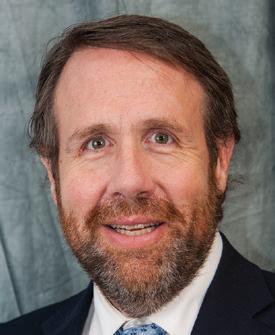
2:00-4:00 pm, repeat from morning, see page 16
Room: 151 A, B, C
Audience: D
Audience codes. A–assistant, D–dentist, H–hygienist, O–office staff, ST–students
Grant Matsuura, DDS
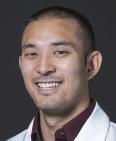
2:00–4:00
Room: 250 D, E, F
Audience: D
If you didn’t think the internet would change the world don’t make the same mistake on Bitcoin. Technology always transforms the world, don’t get left behind.
Have you ever wondered why a single income with an average salary could support an entire family back in 1970? The reason is the purchasing power of the US dollar was much stronger then than now. In 1970 the average salary was $9,870 a year, adjusted for inflation that same salary is worth $75,308 in today’s dollars. The average salary in the USA today is $58,260 dollars. This is only one of many problems of the US dollar monetary system. If you want to learn about all of the issues and how Bitcoin can help fix them come join me. *This is not financial advice it is an educational course about Bitcoin*
Learning Objectives:
• Explain how the current financial system works.
• Explain what Bitcoin is and how it solves many of the issues of the current financial system.
• Spark your curiosity to learn more.
Achieving New Levels of Success in Endodontic Therapy


Limit to 40 participants
Cost: $25, must pre–register at www.uda.org Reid Pullen, DDS Time: 2:00–4:00 pm
Room 253 A, B
Audience: D
From diagnosing and establishing your endo treatment plan to achieving a dense, three–dimensional fill, you’ll learn modern, step–by–step procedures for everyday use. You will also learn how to safely and efficiently maneuver around challenging curves and create and ideal glide path, when to use more complex techniques and how to avoid post–treatment disease. Take your practice to the next level with core concepts from a fresh perspective by learning how to successfully perform modern, basic techniques and why they are important. The workshop will also discuss the different glide path and shaping techniques. This hands–on workshop will cover the 5 main pillars of endodontics:
Path.
Audience codes. A–assistant, D–dentist, H–hygienist, O–office staff, ST–students
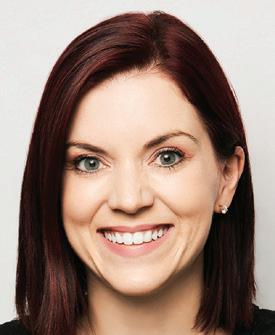
Nick Egbert, DDS, MDS
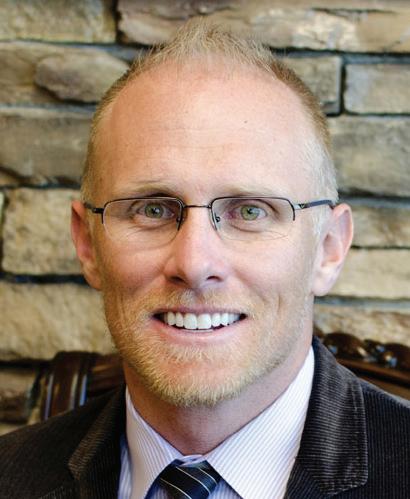
2:00–4:00 pm (continued from morning)
Room 151 G
Audience: D
Local Anesthesia Technique Hands–On Workshop
Limited to 40 participants
Cost: $25, must pre–register at www.uda.org
Enrique Varela, DDS
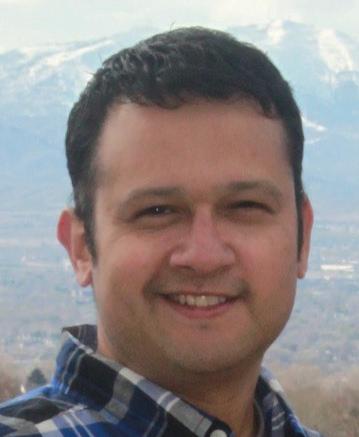
2:00–4:00 pm
Room: 150 D, E, F
Audience: H
Come receive guidance and practice your local anesthetic technique at this hands–on workshop! You will be guided by licensed dentists who can help give you tips and tricks to improve your technique. In this course, you will have the opportunity to demonstrate your current technique, discuss the challenges you face in obtaining profound anesthesia, and receive guidance on methods that may enhance your success. Safety needles will be used for this course. No live needles will be present. Feel free to bring your loupes and headlight.
Learning Objectives:
• Review anatomical landmarks for major nerve blocks used in dentistry
• Utilize anatomical landmarks to help recalibrate your injection technique • Review your current technique and identify areas for improvement
• Practice your revised technique in a safe manner using safety needles
The RDH Toolkit: Chairside and Home Care Innovations for Improved Patient Outcomes
Amber Auger, RDH, MPH
2:00–4:00 pm
Ballroom: D, F
Audience: H
How we decontaminate the oral cavity matters. The demands of fast–paced lifestyles have increased our patient’s oral diseases. To be effective in our chairside treatments, having updated technologies is requisite. This course is designed for attendees to review the latest techniques, how they improve patient care, and how they reduce stress on the clinician.
Learning Objectives:
• Identify how to enhance patient care and communication through leveraging chairside technologies.
• Evaluate the clinician and patient benefits of the technologies
• Review power instrumentation for the dental hygienist
• Understand the science behind the clinical innovations
• Determine how the armamentarium will fit into everyday workflow
From
Audience codes. A–assistant, D–dentist, H–hygienist, O–office staff, ST–students

Shannon Pace Brinker, CDA

2:00–4:00 pm (continued from morning)
Ballroom E, G, I

Audience: A

Tracy Thorup, MBA

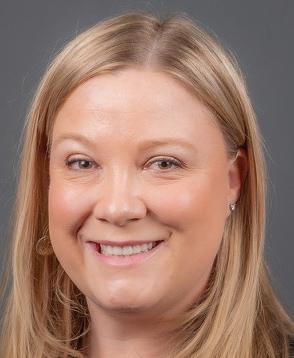
2:00–4:00 pm
Ballroom: H, J
Audience: D, F
We’ve all heard the same things: drop all insurances, submit your FFS fees, if the EOB says to write off your services, “thou must write them off” ... But is it possible that this information is incorrect?
Observe insurance recordings, written documentation, contracts, and learn more about Utah’s laws protecting your office and the patients you serve.
Learning Objectives:
• Understand correct billing principles to be more accurate with treatment planning and keep patients on your side.
• Use state laws and insurance contracts to finally be paid fairly for services you provide.
• Question and Correct the “Status–quo” that has been taught by others in the dental industry.

John Bytheway
2:00–4:00 pm

Ballroom: B
Audience: All
Someone once said, “Regardless of your original intention, you will eventually become what you surround yourself with” If this is really true, then everything we choose to put into our lives should be carefully evaluated. Good music, good movies, good books, good company–all of these things will help us become “good” as well!
Learning Objectives:
• You will become what you surround yourself with.
• Everything we put into our lives should be carefully evaluated.
• All good things will help us become good as well.
Audience codes. A–assistant, D–dentist, H–hygienist, O–office staff, ST–students

Understanding and Successfully Treating Obstructive Sleep Apnea in 2023. What You Should Know
Doug Anderson, MD

2:00–3:00 pm
Room: 254
Audience: D
Learn to know the difference between obstructive sleep apnea and central sleep apnea. Understand the treatment options both surgical and non–surgical for obstructive sleep apnea. Understand the basics of hypoglossal nerve stimulators (Inspire) in the treatment of Obstructive Sleep Apnea. Who are the at–risk patient populations for obstructive sleep apnea?
Learning Objectives:
• What is the prevalence of Obstructive Sleep Apnea? • Understand the magnitude of the financial impact on our national health care system of obstructive sleep apnea. • What are common co–morbid conditions for obstructive sleep apnea? • Learn the common long term adverse health conditions that develop as a result of untreated obstructive sleep apnea.
Latest Trends in Practice Transitions
Randon Jensen BA, CBI
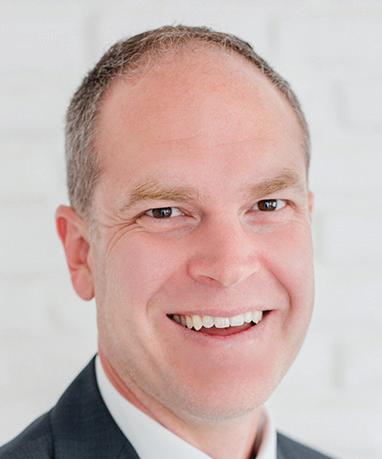
3:30–4:30 pm
Room:254
Audience: D
Learn about the latest trends in practice transitions, including practice values, financing, associateships and DSO sales.
Learning Objectives: • What are practices currently selling for? • What is the current market and economy like for practice sales? • Is selling to a DSO right for me?
CPR and BLS Certification Workshop
Limited to 30 participants Cost $35, must register at www.uda.org
Gabriel Cowley
2:00–4:00 pm, repeat from morning, see page 18 Room 151 D, E, F
Audience codes. A–assistant, D–dentist, H–hygienist, O–office staff, ST–students
Scientific Poster Session
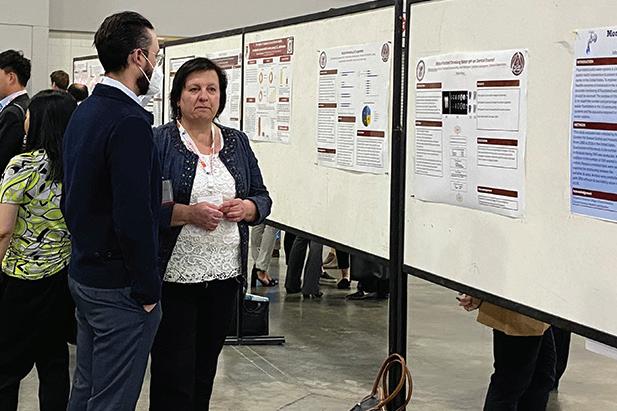

2:30 to 4:30 pm
Learn about the latest research being conducted at our local dental education programs. Show your support of the dental students and residents in our state, by attending the scientific poster presentations. The Poster Session is an opportunity to hear from student clinicians preparing to present their dental research at the American Academy of Dental Research annual meeting. Also, learn from local dental residents sharing current research and clinical practices. Attend and observe these presentations to receive 1 hr CE credit.
Back of Exhibit Hall C
Thursday, March 30, 2022
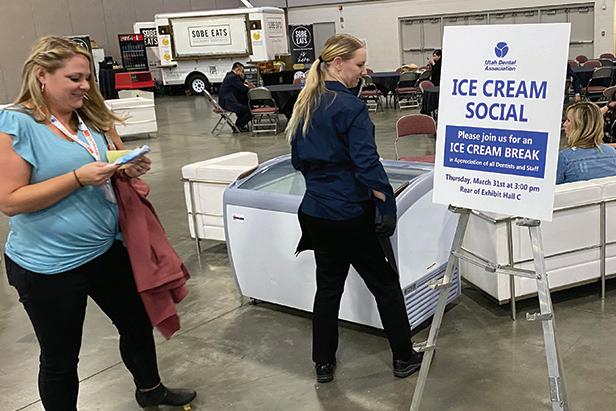
1 Hour of CE Credit Available
Ice Cream Social 2:30 to 4:30
In the back of the Exhibit Hall
UDA Reference Committee 4:30 – 5:30 pm Room 250 D, E, F
University of Utah School of Dentistry/Alumni
Thursday, March 30, 2023
5:30–8:00 pm
School of Dentistry, 530 S Wakara Way, SLC RSVP required
Contact: Janzell Tutor, janzell.tutor@hsc.utah.edu
Roseman College of Dental Medicine Reception
Thursday, March 30, 2023
5:15 – 8:15 pm
Hyatt Regency Salt Lake City 170 W Temple, Salt Lake City UT 84101
Contact: Christopher Bernard: cbernard@roseman.edu or 801–878–1485
Audience codes. A–assistant, D–dentist, H–hygienist, O–office staff, ST–students
7:00 am breakfast
Marriott City Creek, 75 S West Temple, Salt Lake
ICD Contact: Dr Keith Warr: smiles@warrdental.com; 801–355–5385
ACD Contact Dr David B Prince: dbprincedds@hotmail.com; 801–234–0101
Sam Strong, DDS

8:30–11:30 am (continues at 2:00)
Room: 150 A, B, C, G

Audience: D, A
This lecture will compare traditional and digital workflows for fabrication of implant All on X hybrids and overdentures. Expedited prosthetics for fewer appointments, impression method options, centric relation capture at correct vertical dimension, and prosthetic design will be illustrated. Advantages and disadvantages of scanning, computerized virtual denture setups, solid try–ins (vs wax setups), and milling technology will be compared to conventional prosthetic methods.
The afternoon session will continue the morning topics and also include cement and screw–retained options for implant crowns and fixed bridges. The most accurate impression techniques and use of acrylic verification appliances will be shown to guarantee passively fitting screw–retained prostheses. Immediate previsualization techniques will be reviewed. A reliable format for fee determination will also be featured. Learning Objectives:
• Learn expedited workflows to complete overdenture and All on X cases in fewer appointments.
• Learn how to use scanning and online virtual setups to evaluate, modify, and approve prosthetic designs for overdentures and hybrids.
• Determine the relative value of milled solid denture try–ins and final prostheses vs wax try–in and conventional processed appliances.
One
Audience codes. A–assistant, D–dentist, H–hygienist, O–office staff, ST–students
Bernie Villadiego, DDS


8:30–11:30 am (continues at 2:00)
Room: 250 D, E, F
Audience: D, A
Digital Dental photography can be a valuable tool in restorative dentistry: one that enhances teamwork, improves treatment planning, and facilitates great results. Anyone wanting to grow their business that is not currently using digital photography regularly for diagnosis and communication risks being left behind by their competition.
This lecture guides the practitioner new to digital dental photography through some of the basics needed to get started, such as what camera and lens type is needed, how manual camera settings work, what accessories may be useful and how to take high–quality dental photographs to communicate with patients.
In the afternoon session, Dr. Villadiego will show you a simple portrait lighting set up to take gorgeous portrait images. If you’ve ever considered hiring a professional photographer to capture beautiful images of your patients and their new smile to use for marketing and social media, the afternoon session cannot be missed.
Learning Objectives:
• How to set up and prepare for clinical and portrait shots.
• Learn what gears and accessories to buy.
• Learn the basic camera settings and how to shoot in manual mode (ISO, shutter speed and aperture).
Dental
V. Kim Kutsch, DMD
Time: 8:30–11:30 am
Ballroom: B Audience: D, H, A
Dental caries is a complex biofilm mediated disease, significantly influenced by pH, and results in net mineral loss from the teeth. Current research indicates there are multiple known risk factors for the disease including genetic factors. P4 medicine promotes an approach that is predictive, preventive, personalized and participatory. Caries Risk Management meets all of these criteria and is considered best practice in the prevention and treatment of dental caries disease. Unfortunately, early attempts at Caries Risk Management were complicated, confusing, and not easily implemented in daily practice. This program will review the most current scientific literature on caries management and present a simplified approach that is both efficient and effective in clinical practice.
Learning Objectives:
• Participant will be able to discuss the current dental caries biofilm disease model.
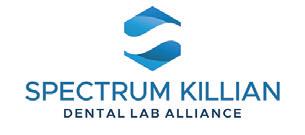
• Participant will be able to describe different caries management strategies including coaching language.
• Participant will be able to implement a simple caries management system.
Audience codes. A–assistant, D–dentist, H–hygienist, O–office staff, ST–students
Trump’s Tweet: Keeping Oral Pathology Great!
Bryan Trump, DDS, MS
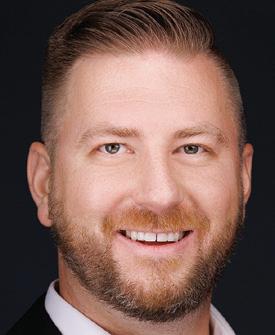

8:30–11:30 am
Ballroom: A, C
Audience: D, H
The presentation will cover some of the more common, as well as some intriguing, oral soft tissue lesions seen in dental offices. Proper terminology will be reviewed. Differential diagnoses will be discussed. It is intended to be an interactive course involving problem–solving and critical thinking.
Learning Objectives:
• Learn and review current terminology used in oral pathology.
• Recognize normal, variations from normal and abnormal soft tissue entities commonly found in the oral and maxillofacial region.
• Discuss different treatments and their outcomes.
Kevin Mangelson, DMD
8:30–11:30 am
Room: 250 A, B, C
Audience: D, H
Want to fail at treatment of sleep apnea with oral appliance therapy? Follow these simple steps to ensure you will maximize potential side effects and be less likely to fully treat sleep apnea! Better yet let’s learn to succeed and take excellent care of your sleep apnea patients. Know what you need to know in order to get the best outcome when treating sleep apnea.
Learning Objectives:
• Learn the common mistakes that dentists make when treating sleep apnea.
• Best practices when treating sleep apnea with MAD.
• How to avoid side effects and common problems.
Audience codes. A–assistant, D–dentist, H–hygienist, O–office staff, ST–students
A Mini–Residency in Pediatric Dentistry: Learning Lab Limited to 20 Participants
Cost $25, must register at www.uda.org
Barney Olsen, DDS, MS 8:30–11:30 am Room: 151 A, B, C
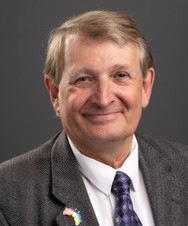
Audience: D, A
This hands–on learning lab will be interactive requiring you to learn 6 important skills in Pediatric Dentistry in a lab setting: 1) Intra osseous anesthesia. 2) Hall Crown fitting and placement. 3) When and how to use SDF. 4) How to assess caries risk on each patient and how that will guide your restorative therapy. 5) How and when to do minimally invasive dentistry. 6) How to fit and construct 5–minute space maintainers. We will be working on tables in groups of 5.
Learning Objectives:
• You will demonstrate intra osseous anesthesia access on a chicken leg.
• You will be able to access the risk of each patient and how that will affect restorative dentistry.
• You will learn and demonstrate proper band fitting and construction of 5–minute spacers.
Anesthesia and Sedation in Dentistry
Mitch Duckworth, DDS

8:30–11:30 am (continues at 2:00)
Room: 251 D, E, F
Audience: D
This course will satisfy DOPL sedation requirement for minimal and moderate sedation license levels.
Anesthesia proudly got its start in Dentistry. More and more patients are looking for doctors that can provide sedation or anesthesia for their dental procedures. With sophisticated monitors, higher standards of care and medications with extremely safe drug profiles, every dentist can meet the expectations of their patients.
“Sedate or don’t sedate”, that is the question… and we will answer it. One of the most important aspects of providing sedation is the pre–anesthetic assessment. This includes matching the correct type and level of anesthesia to the patient and the procedure being performed. During this course we will broadly discuss every level of anesthesia from iatrosedation to general anesthesia.
Learning Objectives:
• Learn different anesthetic modalities, when to exercise prudence and when to “punt” a case.
• Review scenarios of the common sedation related emergencies, and how to manage them promptly.
• Review important cardiac and respiratory physiology and related anesthesia monitoring.
• Review respiratory systems and airway management, “Ten Minutes Saves A Life” and other cognitive aids to assist in an emergency.
Audience codes. A–assistant, D–dentist, H–hygienist, O–office staff, ST–students
Steve Canfield, DDS, CDC
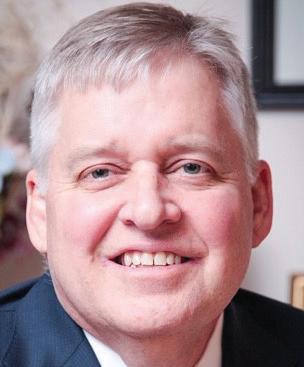
8:30–11:30 am
Room: 251 A, B, C
Audience: F, D
This course will examine the insurance claims process. Insurance plan documents will be discussed. CDT procedure codes will be looked at. We will discuss who is looking at your claims and why your claims are denied. There will be examples of what the dental consultant sees on claims and what they are looking for. The most abused dental codes will be addressed. The analytics that are available to insurance companies to help them adjudicate claims will be discussed. The goal of the course will be to help you get your claims paid in a timely manner and take the stress out of dealing with the insurance companies.
Learning Objectives:
• Learn how to submit the proper dental codes.
• Know what are the insurance company consultants looking for.
• Learn how to coexist with insurance companies.
Limited to 40 participants
Cost: $25, must pre–register at www.uda.org
Enrique Varela, DDS
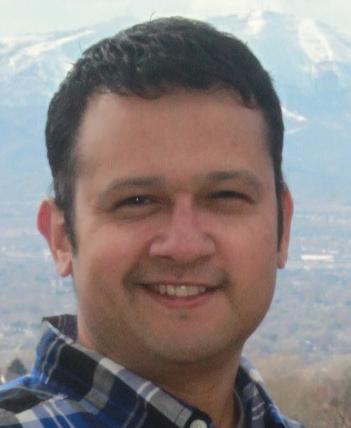
8:30–10:30 am
Room: 150 D, E, F
Audience: H
Come receive guidance and practice your local anesthetic technique at this hands–on workshop! You will be guided by licensed dentists who can help give you tips and tricks to improve your technique. In this course, you will have the opportunity to demonstrate your current technique, discuss the challenges you face in obtaining profound anesthesia, and receive guidance on methods that may enhance your success. Safety needles will be used for this course. No live needles will be present. Feel free to bring your loupes and headlight.
Learning Objectives:
• Review anatomical landmarks for major nerve blocks used in dentistry
• Utilize anatomical landmarks to help recalibrate your injection technique
• Review your current technique and identify areas for improvement
• Practice your revised technique in a safe manner using safety needles
Audience codes. A–assistant, D–dentist, H–hygienist, O–office staff, ST–students
Progressive Periodontal Therapy
Amber Auger, RDH, MPH
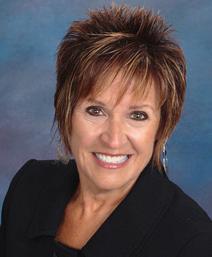
8:30–11:30 am
Ballroom: D, F
Audience: H
Review new and innovative ways to improve the chairside experience for both the patient and the clinician; including voice recognition technologies, instruments, and new homecare items that will optimize patient compliance.
Learning Objectives:
• Access the 2017 AAP Periodontal Classifications and review case studies
• Discuss treatment recommendations based on the patient’s stage and grade
• Evaluate communication techniques to increase patient acceptance
• Discover common billing errors that prevent insurance coverage
• Identify best practices of power instrumentation and the latest hand scaling techniques.
The Future of Whitening: Targeting a New Generation

Marti Santizo, RDH, MBA
8:30–11:30 am
Ballroom: H, J
Audience: H, D, A
In an “instant gratification” marketplace, new whitening technologies that deliver fast, pain free and effective results are key. Delivering an easy to achieve, whiter, more youthful smile with virtually no sensitivity will make you a hero to your patients. This course reviews the science behind dental whitening, small steps you can take to increase treatment acceptance and implement an efficient, state–of–the–art whitening system that will transform the whitening experience for both you and your patient. This program discusses the mechanism of action of hydrogen peroxide with an enhanced peroxide delivery method, the synergistic effects of a shorter wavelength LED device and their combined implication for easier and more rapid tooth whitening. Strategies for engaging patient whitening discussions and the management of patient clinical outcome expectations will be explored.
Learning Objectives:
• Discuss the mechanism of action of tooth–whitening technology including enhanced peroxide delivery and shorter wavelength LED device.
• Identify factors affecting whitening treatment expectations.
• Practice communication skills to discuss whitening for greater patient acceptance.
• Design effective marketing practices and programs for both in–office and take–home whitening as a practice builder.
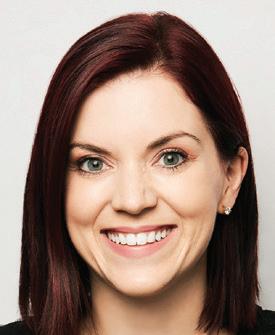
Audience codes. A–assistant, D–dentist, H–hygienist, O–office staff, ST–students
The Role of the Dental Assistant–Techniques and Technologies That Help Deliver “World Class” Dentistry–Hands On Workshop Part I
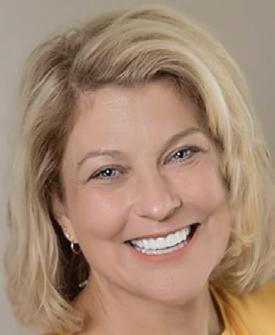
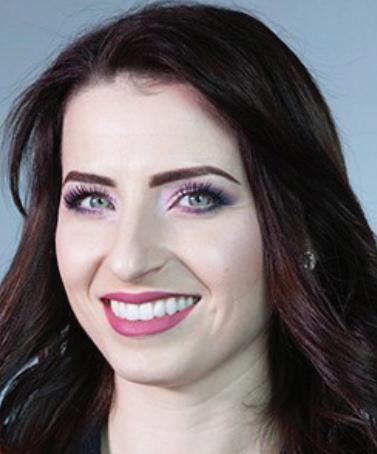

Limit to 100 participants

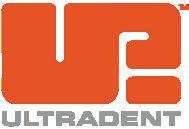
Cost: $25, must register at www.uda.org
Shannon Pace Brinker, CDA Ewa Bujalski, CDA
LaShae Steele, CDA Ariela Myler, EFDA
8:30–11:30 am

Room: 151 G
Audience: A
The ideal dental team must be current and knowledgeable in materials science and be proficient in the various step–by–step procedures that are now required to deliver state–of–the art dentistry to the patient. Increase your artistic skill and satisfaction by learning about materials and techniques that can help deliver to the patient the best dentistry has to offer! This is one comprehensive course that every dental assistant needs to attend!
• Infection Control: Dental assistants must thoroughly conceptualize the best means to comply with those minimum infection control requirements set forth for dental settings. Compliance is critical to adhere to state dental boards, laws, and regulations. The primary intention is to limit the threat of exposure for dental clinicians and the greater public.
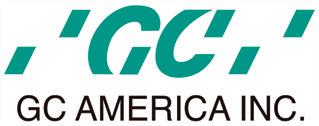
• Digital Photography (Both SLR and Point and Shoot): In this digital age, effective patient and lab communication is predicated on clinical photography. This lecture will provide dental assistants with the necessary skills to shoot basic photographs for quick co–diagnosis, as well as pre–treatment, treatment, and post–treatment clinical angles required for documentation and lab communication purposes. How exquisite provisional restorations serve as an anatomic (functional) and esthetic blueprint for laboratory and lab communications.
• PVS vs Alginate. Alginate Impression Techniques: Dental impressions are essential in dental practice for obtaining accurate representations of hard and soft oral tissues. As scientific advancements continue to enhance impression materials and techniques, progress will continue to be made to simplify the impression taking process and ensure greater accuracy and material stability. Although a variety of materials are available that represent long–lasting alginate impression material that can withstand longer storage periods and times–before–pouring without losing its accuracy.
• Anterior Provisional Restorations: This session will present a philosophy of esthetics centered on the concept of natural beauty created from research in the fields of both art and science. Esthetic success depends not only on the creation of a beautiful smile but ensuring optimal function and health.

Audience codes. A–assistant, D–dentist, H–hygienist, O–office staff, ST–students
“The Age of i”
Pam Kovar, RDA, EFDA
8:30–11:30 am
Ballroom: G, I
Audience: A
Today’s digital world is rapidly changing and moving, sometimes what it feels like lightning speed. The ideal dental assistant needs to be able to keep up with technology, the demands of patients, and the changing world of “i”. The ideal dental assistant must be current, knowledgeable, and eager to keep up in the dental digital world. Not only do they have to be proficient in materials and procedures, but they need to rapidly learn and train on the digital world around them. Dentistry is moving to digital, and it’s not going back! Dental assistants can help deliver better, faster care in this new era. From simple, single implant guides to all on X guides and beyond, dental assistants are vital to the changing digital world.
Learning Objectives:
• What is new in the digital radiology world and what are the new radiology requirements every assistant needs to know.
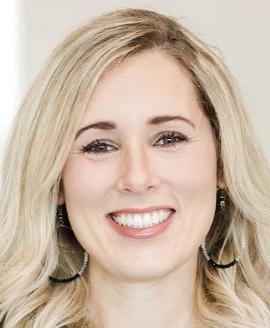
• Digital photography, videography, and the impact of each in marketing & patient education.
• Utilizing iTero scanners for patient education and treatment acceptance.
Get the Phone! Never Dread Conversations In Person or On the Phone
Larry Guzzardo, BSBA

Time: 8:30–11:30 am
Ballroom E
Audience: F, D
Savvy professionals know how to make every conversation count in their favor. They realize objections can be overcome because smart communicators understand that “No” is often really “YES” in disguise. Learn the skills that lead to more scheduled appointments, fewer last minute appointment changes, and increases patient referral. Join into master techniques that will help you uncover what patients really want and need despite what they “say” they need.
Learning Objectives:
• Minimize last minute cancellations.
• Create value for the “price shopping” patient.
• Confidently know what to say to the “You don’t take my insurance?” patient.
Audience codes. A–assistant, D–dentist, H–hygienist, O–office staff, ST–students
David Kirby, MBA, MS

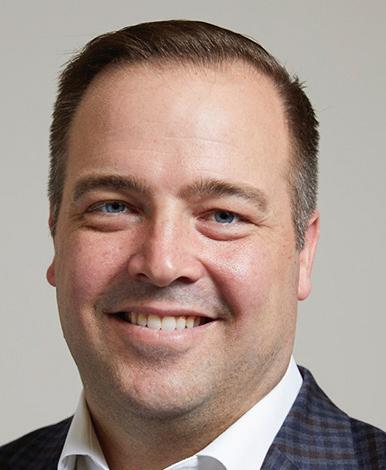
Jonathan Moffatt
9:00–10:00 am
Room:254
Audience: D
Covid–19 has had a dramatic effect on both the dental industry and the world. For many of us, the Covid–19 pandemic is in the rearview mirror, but now dental practices are facing something that many practices, dentists, staff, have not experienced before, severe economic uncertainty. Inflation is at an all–time high, costs of goods and services ever increasing, labor costs and availability are extremely volatile, interest rates have more than doubled over the last 12 months, and dental student loan debt has increased 4X over the last 25 years. With an uncertain economic future, is now the best time to grow your practice, buy/build your building, expand your practice, or perhaps sell your practice? Walk out of this course with better understanding.
Learning Objectives:
• Will your bank fund your growth? How you can tell in 5 minutes and get to a YES!
• 3 things you should absolutely show your bank to get them to fund your growth.
• How to pick the best financing partner to fund your growth.
Pamela Chapman, RD, CDCES
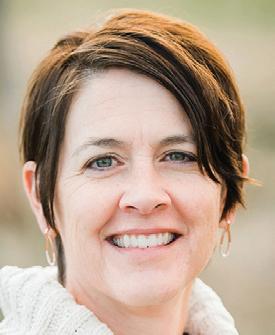
10:30–11:30 am
Room: 254
Audience: D, H, A
This presentation includes a discussion about the relationship between dental care and diabetes, a discussion about the National Diabetes Prevention Program, and ways to identify those at risk for developing Type 2 diabetes. Attendees will also learn how to connect their patients to this valuable program.
Learning Objectives:
• Discuss the link between dental care and blood sugars.
• Understand what the National Diabetes Prevention Program is and how to refer patients.
• Identify patients at risk for developing Type 2 diabetes.
Audience codes. A–assistant, D–dentist, H–hygienist, O–office staff, ST–students
Limited to 30 participants
Cost $35, must register at www.uda.org
Gabriel Cowley
9:00–11:00 am (repeats at 2:00)
Room 151 D, E, F
Complete your basic lifesaving, BLS certification which is required every two years for licensure, for you and your staff while at the convention. This course will provide current information and hands–on training using the most up–to–date guidelines, CPR training simulators and automated external defibrillators. Receive your BLS certification card upon completion.
Learning Objectives:
• Adult and pediatric CPR, 30 compressions: 2 rescue breaths. • Two–rescuer scenarios and use of the bag mask. • Foreign–body airway obstruction. • Automated external defibrillation.
The Alliance to the Utah Dental Association Will be hosting
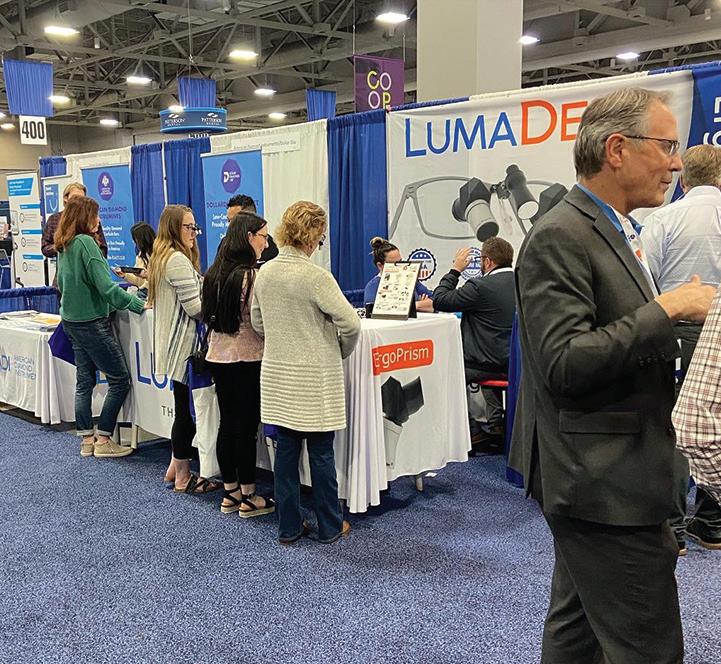
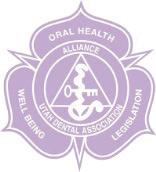
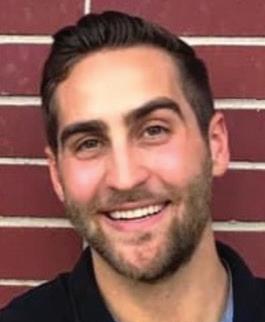
“Friendship and Dentistry Working Together”
Everyone is welcome to join us for lunch and service! We will be putting together Dental Hygiene Kits. We will meet on Friday, March 31th 11:30–1:30
Meet in the Solitude Room at the Marriott Lunch will be $15 Pay thru Venmo: @audautah or You may also pay and register with UDA online registration
For questions, please email: Erinaste@gmail.com
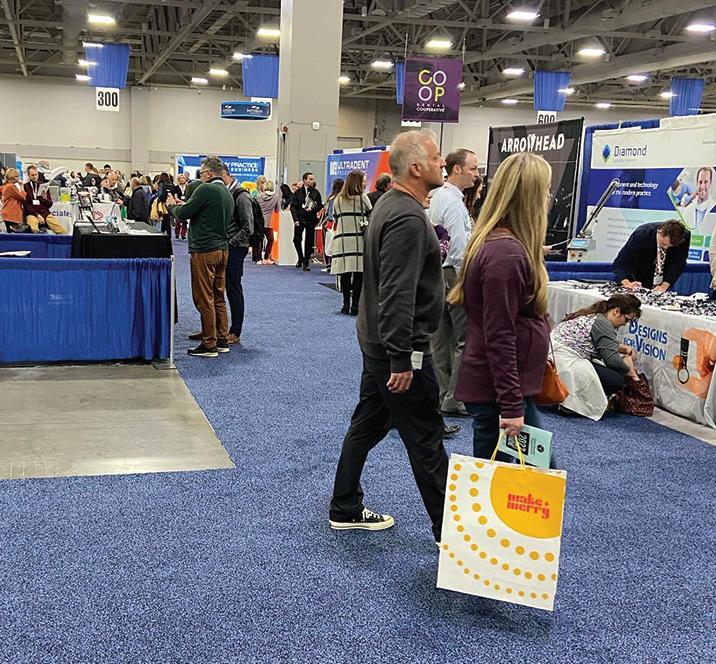
Audience codes. A–assistant, D–dentist, H–hygienist, O–office staff, ST–students
All Dental Hygienists are invited to attend Friday, March 31, 2023
UDA Dental Hygiene Affiliate members: $25 Non–UDA Hygiene Affiliate members: $50 12:00–1:30 pm Salt Lake Marriott City Creek, 75 S. West Temple Must pre–register at: www.uda.org

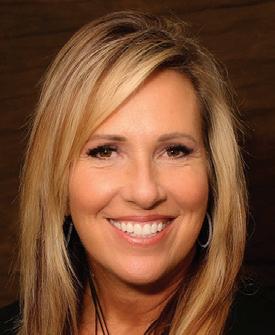
Michelle Hendrickson, RDH, MEd
Dental implant placement has become a part of mainstream dentistry. What used to be considered uncommon in the United States is now customary standard care for supporting dental restorations and edentulous areas. In addition, the number of dental implants and complete arch implant supported restorations being placed is growing at a rapid rate. Despite this growth, scarce information is available about dental implant maintenance protocols and some of the information is conflicting. The purpose of this presentation is to create a dental hygiene protocol that dental hygienists can follow when treating their patients who have dental implants. Important focus will be placed on maintaining complete implant supported fixed arch restorations.
Michelle has practiced as a Registered Dental Hygienist for 28 years. She received her bachelor’s degree in Health Administration from Weber State University in 1994 when she graduated from their Dental Hygiene program. She recently completed her Master of Education in May of this year. Her presentation, Dental Implant Maintenance for the Dental Hygienist, is her master’s thesis project. Michelle is married to Matt Hendrickson, and they have three children and one daughter in law. She currently works for Dr. Mike Crowton 2 days a week and as an adjunct faculty 1 day a week in the Dental Hygiene Clinic at WSU.
Workflows for Digitally Produced All–on–X Hybrids, Overdentures, and Screw–Retained Implant Prosthetics
Sam Strong, DDS
2:00–4:00 pm (continued from morning)
Room: 150 A, B, C, G

Audience: D, A
One Picture is a Thousand Veneers
Bernie Villadiego, DDS
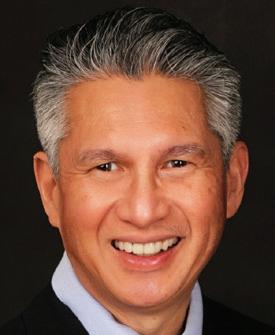
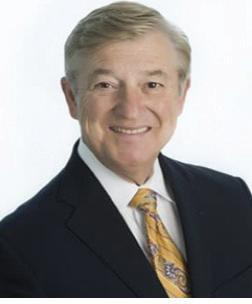
2:00–4:00 pm (continued from morning)
Room: 250 D, E, F
Audience: D, A
Audience codes. A–assistant, D–dentist, H–hygienist, O–office staff, ST–students
V. Kim Kutsch DMD
2:00–4:00 pm
Ballroom: B
Audience: D, H, A
Caries Risk Management is considered best practice in the prevention and treatment of dental caries disease, although early attempts in clinical practice have been overly complicated. Implementing this concept into daily practice affects all management systems in the office, but more importantly, really requires new skills to help coach the patient along their journey to health. This approach has been called Motivational Interviewing, Patient Centered Dentistry, and/or Wellness Coaching. But regardless of the name, the skills are the same. This lecture will present this philosophy and review verbal coaching skills.
Learning Objectives
• Upon completion, the participant will be able to identify the common known risk factors and treatment strategies for dental caries.
• Upon completion, the participant will be able to discuss the strategic decisions necessary to successfully implement caries risk assessment into daily practice.
• Upon completion, the participant will have learned new verbal coaching skills to help their patients achieve health.
Trump’s Tweet: Not Everything is Black & White, But Some Things Are
Bryan Trump, DDS, MS



2:00–4:00 pm
Ballroom: A, C
Audience: D, H, A
The presentation will cover various radiographic pathologies seen in Utah dental offices. Proper terminology will be reviewed. Differential diagnoses will be discussed. It is intended to be an interactive course involving problem–solving and critical thinking.
Learning Objectives:
• Learn and review current terminology used in oral pathology.
• Recognize normal, variations from normal and abnormal radiographic entities commonly found in the oral and maxillofacial region, as well as some rare cases seen in Utah dental offices.
• Discuss different treatments and their outcomes.
TMD: The Basics and State of the Art
Kevin Mangelson, DMD
2:00–4:00 pm
Room 250 A, B, C
Audience: D, H
Let’s talk TMJ! We will review the basics of TMJ anatomy and diagnosis. Get the tools you need to treat straight forward TMJ right in your chair. Additionally, a discussion on regenerative TMJ treatment, the future of TMJ therapy.
Learning Objectives:
• Learn the anatomy of the TMJ and common dysfunctions.
• Learn, diagnosis and simple treatments for common TMJ patients.
• Introduce the future of TMJ treatment with regenerative TMJ.
Audience codes. A–assistant, D–dentist, H–hygienist, O–office staff, ST–students
A Mini–Residency in Pediatric Dentistry: Learning Lab
Limited to 20 Participants
Cost $25, must register at www.uda.org
Barney Olsen, DDS, MS

2:00–5:00 pm, repeat from morning, see page 30 Room:151 A, B, C
Audience: D, A
Anesthesia
Mitch Duckworth, DDS

2:00–4:00 pm (continued from morning)
Room: 251 D, E, F
Audience: D
Local Anesthesia Technique Hands–On Workshop
Limited to 40 participants
Cost: $25, must pre–register at www.uda.org
Enrique Varela, DDS
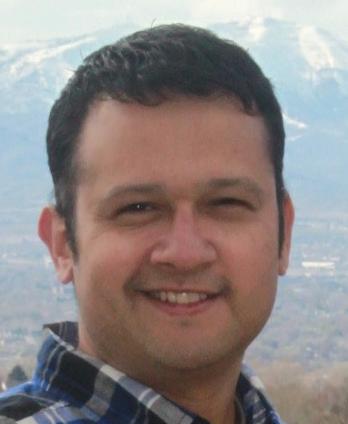
2:00–4:00 pm, repeat from morning, see page 31 Room: 150 D, E, F
Audience: H
The Dental Hygiene Detective
Amber Auger, RDH, MPH

2:00–4:00 pm Ballroom: D, F
Audience: H
Review the role of pH in the caries risks assessment and learn to identify stages of demineralization and remineralization.
Learning Objectives:
• Learn how to expedite risk assessments to enhance patient education and prevention.
• Prioritize the patient’s high–risk factors to decrease their risks of oral disease and systemic health comprehensively.
• Evaluate the latest clinical technologies and homecare technologies to decrease patients’ oral and systemic disease risks.
Audience codes. A–assistant, D–dentist, H–hygienist, O–office staff, ST–students
Pam Kovar, RDA, EFDA
2:00–4:00 pm
Ballroom: G, I Audience: A
#Nailedit in your consultation but your patient didn’t close? Left wondering, where it went wrong? Discover the four missing ingredients to closing all of your cases! Dental assistants are often one of the first people patients interact with in the dental office. The ideal dental assistant needs to be well rounded in understanding how each personality type engages, learns, and ultimately makes decisions in their personal dental care. Dental Assistants are the quarter backs in the office, and they control the “game” of the patients moving throughout the office. Having a knowledgeable dental assistant who can read social situations and people, is key to a successful consultation and case closure.
Learning Objectives:
• Learn how to recognize a personality, from the first phone call to the walkout, leading to a successful first visit. We must develop a FAST connection and recognize how to do that within seconds! Brand your office to your patients to make sure they know they’ve called the right place, then start working on building TRUST.
• Recognize personality types in person: Body language, facial expressions, words, listening, how they do their paperwork etc.
• Learn what YOUR personality type is and how can you adjust your personality to meet the expectations of the personality in front of you. How to apply this to co–workers!

Tracy Thorup, MBA
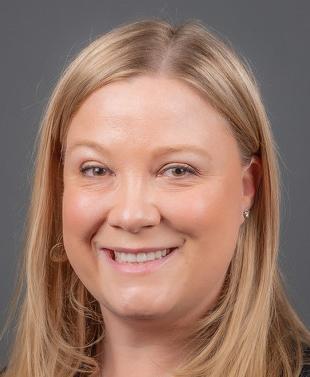
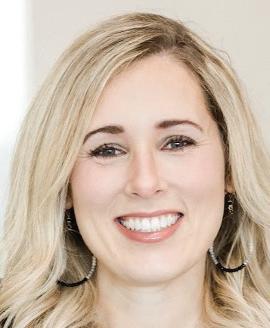
2:00–4:00 pm
Ballroom: E Audience: F, D
We’ve all heard the same things before: drop all insurances, submit your FFS fees, if the EOB says to write off your services, “thou must write them off” ... But is it possible that this information is incorrect? Observe insurance recordings, written documentation, contracts, and learn more about Utah’s laws protecting your office and the patients you serve.
Learning Objectives:
• Understand correct billing principles to be more accurate with treatment planning and keep patients on your side.
• Use state laws and insurance contracts to finally be paid fairly for services you provide.
• Question and correct the “Status–quo” that has been taught by others in the dental industry.
Audience codes. A–assistant, D–dentist, H–hygienist, O–office staff, ST–students

Dentistry–Hands–On Workshop Part II
Limit to 100 participants


Cost: $25, must register at www.uda.org
Shannon Pace Brinker, CDA



Ewa Bujalski, CDA

LaShae Steele, CDA
Ariela Myler, EFDA
2:00–5:00 pm

Room: 151 G
Audience: A
The ideal dental team must be current and knowledgeable in materials science and be proficient in the various step–by–step procedures that are now required to deliver state–of–the art dentistry to the patient. Increase your artistic skill and satisfaction by learning about materials and techniques that can help deliver to the patient the best dentistry has to offer! This is one comprehensive course that every dental assistant needs to attend!
Learning Objectives:
• Isolation Techniques from Retractors to Rubber Dam
Placement: With today’s heightened awareness of infection control, patient safety, and technique–sensitive dental materials, meticulous operative field isolation is mandatory. Today the rubber dam is the standard of care for isolation during restorative procedures and should be employed whenever possible. Once the teeth are isolated for any proper restoration, we also must not forget about tissue management. This management begins with rapid profound knowledge of hemostasis. For every restoration— direct or indirect—controlling hemostasis is necessary.
• Fluoride, Coronal Polishing, and Sealant Placement: Mouth rinses, fluoride varnishes, and dental sealants provide excellent resources for preventative care and maintenance of good oral hygiene. Mouth rinses combat periodontal diseases, dry mouth, and bad breath. Fluoride varnishes and sealants both work toward specifically preventing dental caries. Fluoride varnish, well accepted by children, provides an ideal fluoride treatment. Similarly, the improvements in sealants over the past 40 years make them a cost–effective and reliable preventative measure.
• Posterior Provisional Restorations: Provisional restoration is a critical phase in the treatment of the dental patient. The design for the provisional restoration begins with a gathering of diagnostic information, which includes the desires of the patient and dental team. The hardest part of the fabrication process is not the trimming or the finishing, but the carving of the anatomy and the occlusion.
• Whiter, Brighter, Healthier Teeth: The course will cover practical techniques for in–office and take–home whitening. Fulfilling the desire and demand to have a bright and white smile is the goal of every dental practice. A bright smile not only presents a healthy and beautiful impression but also increases one’s interest in oral hygiene, allowing the patient to have higher self–confidence. Before the patient can go through the whitening process, we must have a proper consultation to understand the patient and their desires—and determine which of the various product options to recommend.
Audience codes. A–assistant, D–dentist, H–hygienist, O–office staff, ST–students

Marti Santizo, RDH, MBA
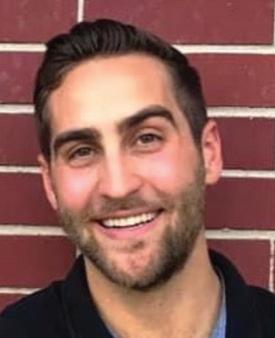
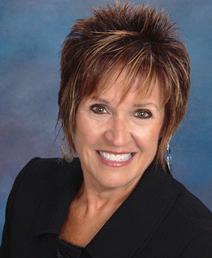
2:00–5:00 pm
Ballroom: H, J
Audience: H
This course will provide a comprehensive look at prevalent oral conditions and concerns. Included in this program is information to help your patients achieve oral health and understand the connection to their systemic health. Based on current scientific evidence, this course will present assessment strategies and therapies to manage xerostomia, erosion, caries and dentin hypersensitivity.
Learning Objectives:
• Discuss the role of saliva and causes of xerostomia.
• Identify prevention and treatment of oral complications of xerostomia, in addition to palliative treatment for symptom relief.
• Discuss the prevalence and mechanism of dentin hypersensitivity.
• Differentiate between caries and acid erosion while incorporating therapies for the prevention and management of erosion, caries, and dentin hypersensitivity.
Limited to 30 participants
Cost $35, must register at www.uda.org
Gabriel Cowley
2:00–4:00 pm, repeat from morning, see page 36 Room 151 D, E, F
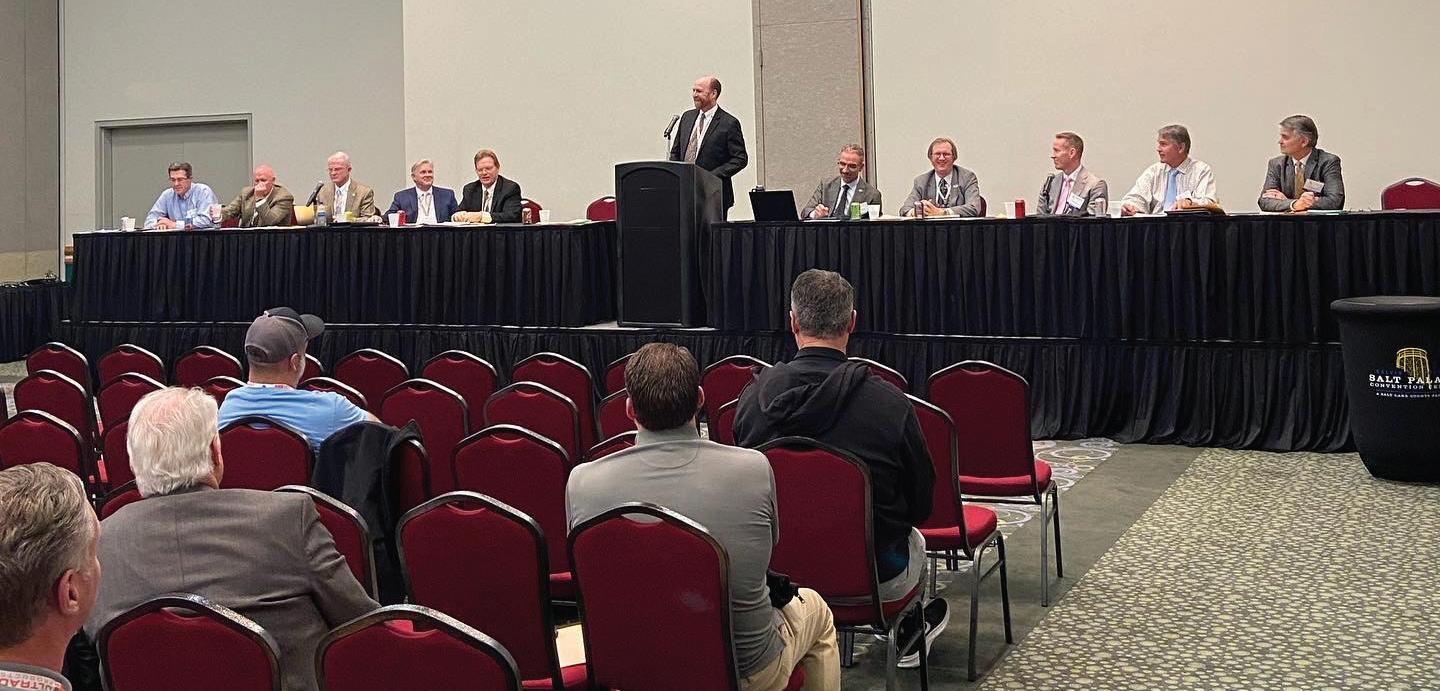
Audience codes. A–assistant, D–dentist, H–hygienist, O–office staff, ST–students
Patients with Disabilities: Can We Provide Accessible Care?
Yes We Can!
Kara Taylor, RDH, BS
1:30–2:30 pm
Room: 254
Audience: D, A, H
Most people with a mild to moderate intellectual or developmental disability can be treated successfully in a general practice setting by adapting skills used every day. Come learn appropriate techniques and communication skills that will help you be successful in delivering the best quality care to patients with special needs. Help break down the barriers to care faced by these patients and their caregivers. What barriers do you have control over and where do you start?
Learning Objectives:
• Describe disparities in healthcare experienced by people with disabilities
• Recognize barriers faced by people with disabilities when accessing healthcare services
• Learn strategies and approaches to provide disability-competent, responsive care
Dental Updates from the Utah Medicaid Program
Jennifer Strohecker, PharmD

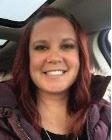
3:00–4:00 pm
Room: 254
Audience: D
In this course you will learn the aligning dental services with the Medicaid strategic goals. The course will review updates in Medicaid dental policies and priorities to improve education to Medicaid dental providers.
Learning Objectives:
• Provide an overview of the Utah Medicaid Program and how dental services are delivered.
• Review updates in Medicaid dental policies and priorities to improve education to Medicaid dental providers.
• Aligning dental services with Medicaid strategic goals.
UDA House of Delegates
4:30–6:30 pm
Room: 251 A, B, C
Exhibit Hall Closes 4:30 pm


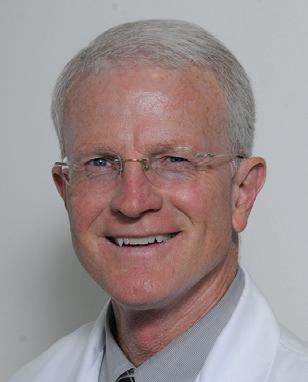
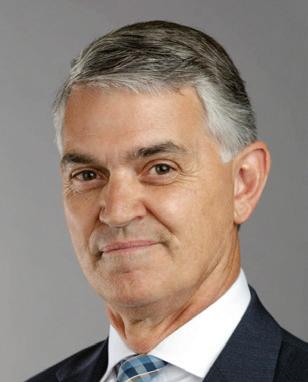
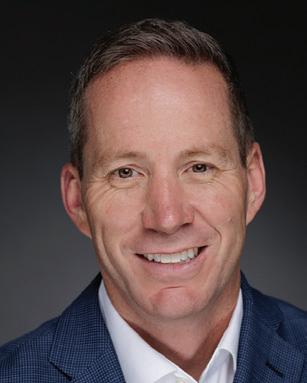
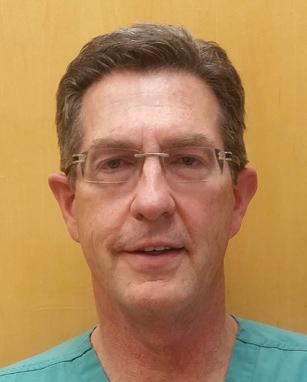
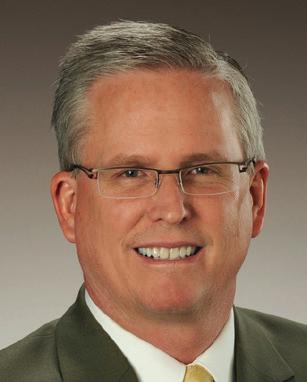
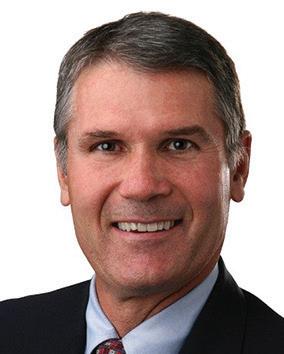

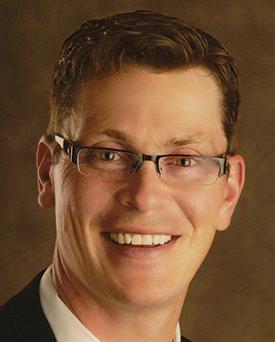
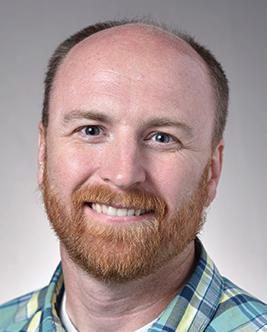
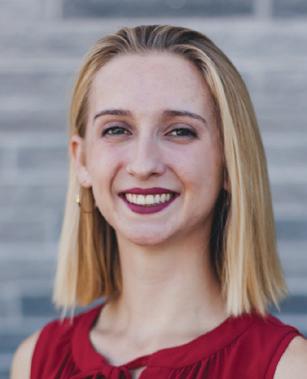
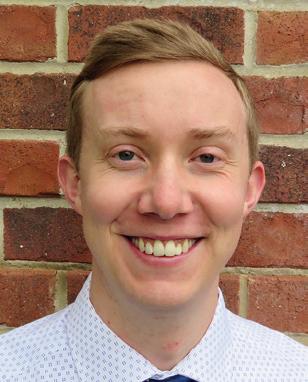
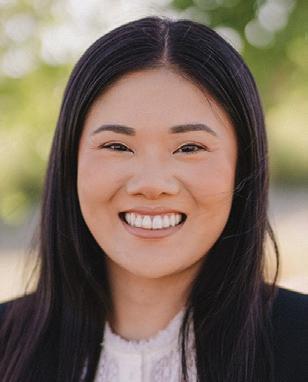


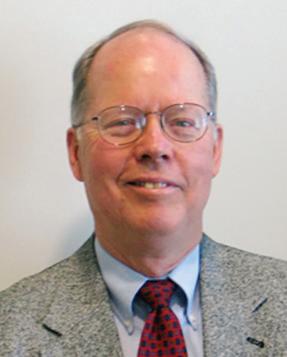
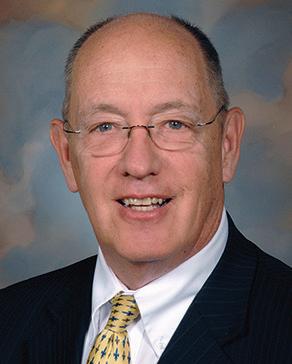
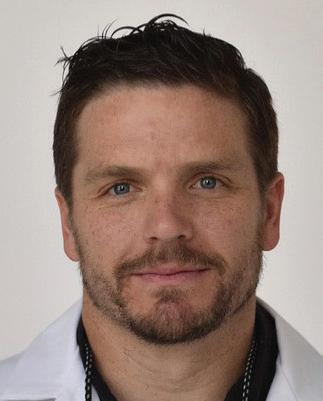
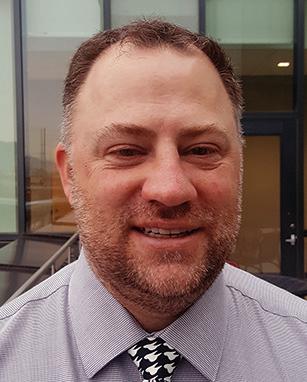
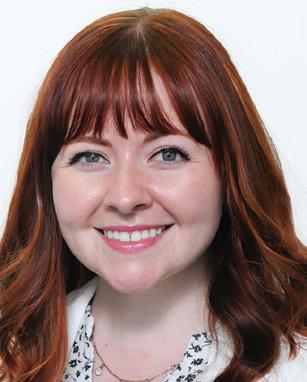
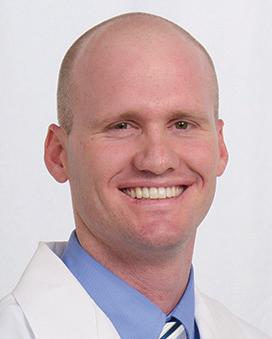
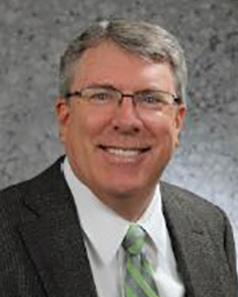
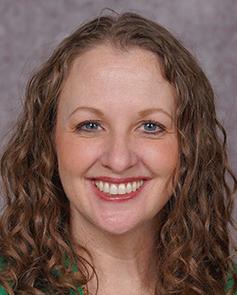
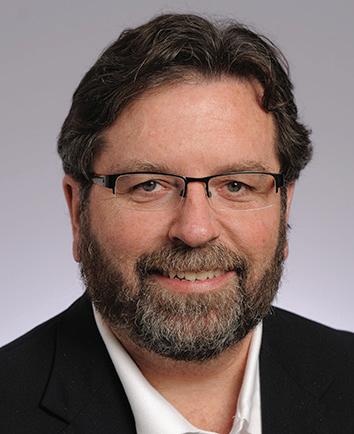
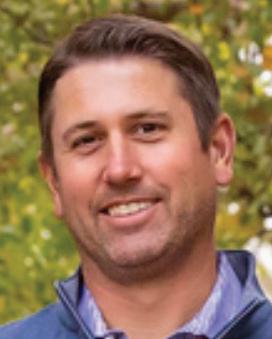
1891 A Scott Chapman
1892 A Scott Chapman 1893 A Scott Chapman
1894 A Scott Chapman 1895 Henry A Whitney 1896 Henry A Whitney 1897 Alma B Dunford 1898 George Ellerback 1899 Ernest A Tripp 1900 Ernest A Tripp 1901 Ernest A Tripp 1902 Ernest A Tripp 1903 William G Dalrymple 1904 William G Dalrymple 1905 William G Dalrymple 1906 D N Smith 1907 Fred W Meakin 1908 Styles W Wherry 1909 H K Webber 1909 Oliver H Budge 1910 Roy E Wight 1911 Claude Gates 1912 Joseph H Grant 1913 Wesley J Davis 1914 Sam B Thatcher 1915 Arthur C Wherry 1916 Arthur C Wherry 1917 Harry W Davis 1918 D N White 1919 William H Petty 1920 N H Nelson 1921 William A Squires 1922 R L Watson 1923 R L Watson 1924 Ernest W Browning 1925 J Rex Calvert 1926 Earl E Greenwell 1927 D D Stockman
1928 R Chester Dalgleish 1929 Hyrum Bergstrum 1930 Clifford Rudine 1931 T Fred Hardy 1932 Angus W Petty 1933 E Arden Hunt 1934 Joseph H Davis
1935 William Wood 1936 Wendell W Merrill 1937 Earl W Lambert 1938 Edwin B Thatcher 1939 Madison W Merrill 1940 Kenneth W Merrill 1941 Levon O Halgren 1942 Dee L Folsom 1943 D Arthur Jones 1944 Curtis G Green 1945 Carl M Decker 1946 William S Moyes 1947 Martin G Kuhre 1948 Preston L Jones 1949 Sanford Ballinger 1950 Douglas Pincock 1951 W Les Warburton 1952 Bruce P McBride 1953 Harold E Nelson 1954 William G Burdett 1955 DaCosta Clark 1956 Leslie A Poulson 1957 Marcus C Funk 1958 Kenneth L Dedekind 1959 Russell B Petty 1960 Moses H Thatcher 1961 Frederick R Hardy 1962 A Lemoyne Petersen 1963 Alfred Ridge 1964 William C Crockatt 1965 Todd M Burton 1966 Reese B Mason 1967 Neal L Adams 1968 D Creed Brimhall 1969 Reed P Larson 1970 Ralph B Montgomery 1971 Don A Buswell 1972 Charles E Foster 1973 Daniel Q Price 1974 Clyde F Hurst 1975 Sanford M Bingham 1976 Newell E Warr 1977 Daniel W Benton 1978 Paul R Lunt 1979 Robert G Woffinden
1980 James D Ashman
1981 David S Taylor
1982 John A Matis
1983 John M Bevan 1984 Vern B Eyre 1985 Gary L Matthews 1986 Robert S Sumner
1987 Richard O Petty 1988 Clair R Hopkins 1989 Brian F Thornley 1990 John L Chambers
1991 Jerry B Black 1992 C Brook Olson 1993 A J Smith
1994 Karl R Koerner
1995 Thomas A Page 1996 Neal B Evans
1997 Gerald S Summerhays 1998 Stephen S Morgan 1999 Norman K Rounds 2000 James N Ence
2001 Brian L Lundberg 2002 Alexander B Larsen 2003 J Jerald Boseman 2004 Rand T Mattson 2005 Mark B Blaisdell 2006 Ron S Bowen 2007 Jon G Fuller 2008 Gary L Crawford 2009 James M Williamson 2010 Mark V Cowley 2011 R Blake Nielsen 2012 Scott L Theurer 2013 Gary B Wiest 2014 James H Bekker 2015 Val L Radmall
2016 Brent Larson 2017 Glenn Zeh
2018 Cody Calderwood 2019 Darren Chamberlain 2020 Mike Smuin 2021 Greg Gatrell
1981 Howard Swanson, Elbert Thompson
1982 Reed Holdaway
1983 Fred Hardy
1984 Dan Price
1985 Don Buswell
1986 Max Blackham, Neal Evans
1987 Charles Foster, Edgar Stultz
1988 Newell Warr
1989 Ralph Montgomery
1990 Dan Benton, John Matis
1991 Gordon Christensen, Rella Christensen
1992 Vern Eyre, Clyde Hurst, Donald Mantyla
1993 John Bevan, Howard Call
1994 Paul Lunt, Richard Reiser
1995 Lynn Powell, Henry Tanner
1996 Richard Petty, A. J. Smith, Floyd Tanner
1997 Mark Christensen, Robert Killpack
1998 Timothy Evans, Michael Fitzgerald, Richard Jolley, Robert Jolley
1999 Peter Knudson, Brook Olson
2000 Dan Fischer, Gerald Summerhays
2001 Jerry Black, Roger Grua, Richard Whitehead
2002 Lea Erickson, Brian Thornley
2003 Roy Hammond, Gary Matthews
2004 Jay Aldous, Wallace Brown, Richard Haskins
2005 John Chambers, Stephen Morgan, David Taylor
2006 Richard G. Ellis, Chris Simonsen, Anthony Tidwell
2007 Jerald Boseman, Arn Gatrell, John Gerritsen, Dale Linton
2008 James Ence, David Low, Eric Vogel
2009 Allen Christensen, Niles Herrod, Pamela Hilbert
2010 Brian Lundberg, Norman Rounds, Orson Wright
2011 Brent Larson, Mel Malmstrom, Steven Steed
2012 Wayne Chisholm, Alex Larsen
2013 Jim Guinn, Karl Koerner, John Starley
2014 Stephen Burton, Max Malan
2015 Mark Blaisdell, Gary Crawford
2016 Rand Mattson, Blake Nielsen
2017 Richard Engar, Morris N Poole
2018 Ron Bowen, James Williamson
2019 Craige Olson, Greg Oman
2020 Gary Wiest, Jim Bekker
2021 Mark Cowley, Joel Janis
2022 Craig R Proctor, Ralph Binns Kim Michelson, DDS
Dr. Kim Michelson served with the Utah Department of Health from 2009 to March 2022, striving to improve dental care for all of Utah, especially for the underserved. 12 of his 13 years with them was full–time, where he served in various public health dentistry settings including nine years as the State Dental Director. He worked with CMS, CDC, UDA, the Utah Oral Health Coalition and a variety of other boards and committees. He was a co–author of the report “2015–2016 Oral Health Status of Utah’s Children”. He served as the president of the Salt Lake District Dental Society with the UDA from 2013 to 2014 and served on their board from 2007 to 2014. He is also a Fellow of the Pierre Fauchard Academy.
From January 2021 to March 2022, he worked as a Faculty Practice Clinician with the University of Utah School of Dentistry. He currently is employed with the Department of Corrections doing clinical dentistry. Prior to starting his public health dentistry career, he was in private practice for 21 years.
He started his career in dentistry after earning his DDS degree from Creighton University and completing a dental general practice residency with the University of Utah School of Medicine and Affiliated Hospitals in 1988.
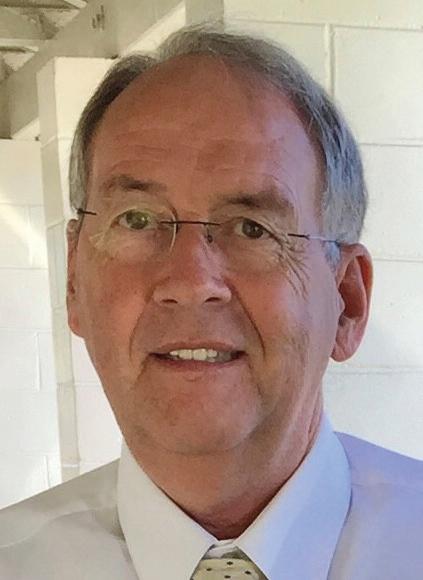
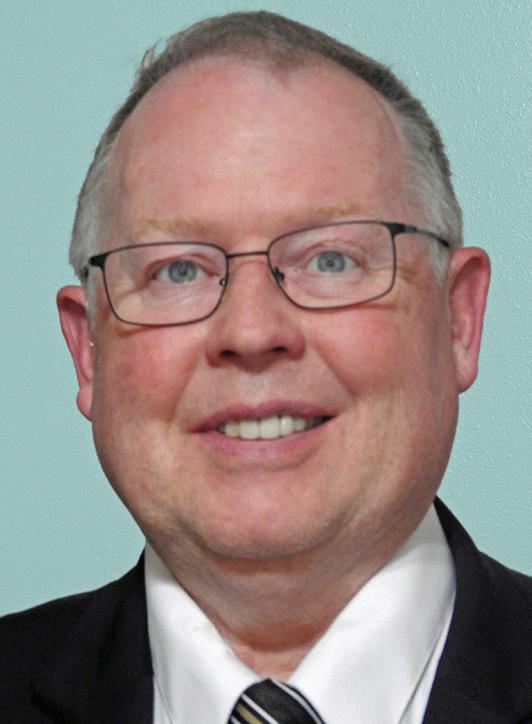
After graduating from high school in Idaho Falls, Idaho, Dr. Duane Orchard attended BYU with a major in Zoology. He graduated from Northwestern University Dental School in Chicago, Illinois in 1974. Upon completion of his dental education, Duane was commissioned an officer in the United States Army dental corps. His military time was spent at Fort Carson in Colorado Springs, Colorado. He and his wife Julie had five children. After serving in the military the Orchards moved their family to Bountiful, Utah where he practiced for 37 ½ years. Dr Orchard was appointed to the Utah State Dental Board 1993–2000. He served on the Western Region Examining Board for 25 years.
One year after losing his dear wife, Julie to complications of diabetes, Duane sold his practice. After retirement he served as the interim director of the dental clinic at the Church College of Samoa. The following year he returned to Samoa for two months to lend a helping hand. Dr Orchard went to Mongolia along with Dr. Clyde Larsen, of Price, UT at the request of a local community government to mentor dentists in the community, and to spend half of each day teaching elementary school students dental health and hygiene. Following his return, he met and married Nora Fitzgibbins, who joined him to serve at the clinics in Samoa and Tonga. Their service was cut short because of the Covid pandemic, but Nora said her wildest dreams would not have made her a dental assistant in the South Pacific. Dr. Orchard volunteered as the director of the Pantry Smiles dental clinic sponsored by the Bountiful Food Pantry where he also served as a board member. The Pantry clinic, through the help of volunteer dentists in Davis County and the dental assistant program of Davis Technical College, have provided over $1,000,000 worth of dental care to the underserved in the community.
Dr Orchard has 16 grandchildren whom he adores. He loves to spend time traveling through our beautiful state, golfing, fishing, photographing, and painting.
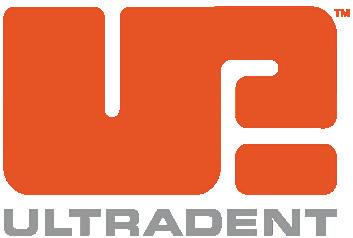

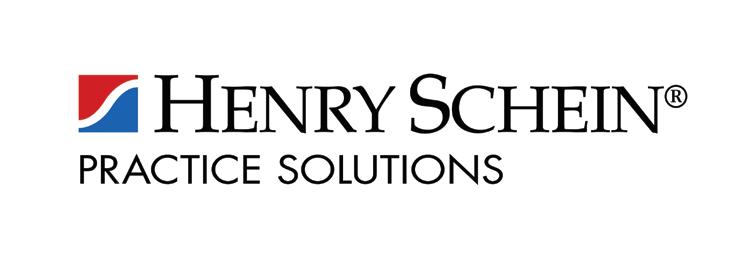



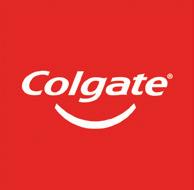


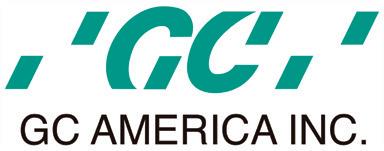



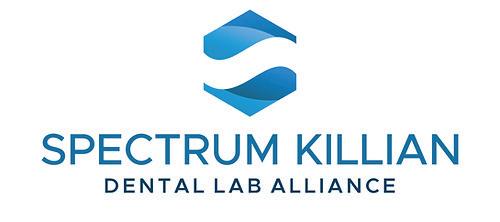
Doug Anderson, MD was born and raised in Northern Utah, obtaining his undergraduate education from Brigham Young University. He went to The University of Utah for his medical training then completed a General Surgery internship at Indiana University Medical Center. Delicate surgery is a special interest of Dr. Anderson’s, so he continued his education in 1995 and completed an additional fellowship in Head and Neck Surgery from Indiana University. Dr. Anderson enjoys helping patients manage various types of allergies at his allergy clinic in Ogden. Dr. Anderson is an active member of the community and has served as President of the Ogden Surgical–Medical Society, President of the Utah Otolaryngology Society, and President of the medical staff at Ogden Regional Medical Center, where he was also Chief of the surgery department for several years.
Amber Auger RDH Amber is a practicing dental hygienist and clinical innovations implementation specialist. Amber obtained a master’s degree in public health from the University of New England and a bachelor’s in dental hygiene from the University of New Haven. Amber Auger is a key opinion leader for several dental companies, speaker, and published author. With over 18 years of experience in the dental industry, Amber provides customized protocols to allow practices to thrive, refocus on the patient experience, and utilize systemic approaches to Periodontal Therapy. Amber is also a monthly contributor to RDH Magazine, featured author for DentistryIQ, Editor of RDH Graduate Newsletter, and host of #AskAmberRDH. She is the founder of Thrive in the OP, which provides weekly coaching and live–time on–demand business and clinical sessions for its members. www.amberauger.com
Jinny Bender DMD is a clinical dentist at Glidewell. After earning her Bachelor of Arts in Biological Sciences from the University of California at Berkeley, she went on to receive her Doctor of Dental Medicine degree from Tufts University School of Dental Medicine in Boston, Massachusetts. She practiced general dentistry for 27 years before joining Glidewell in 2022. Dr. Bender is a member of the ADA, CDA and Orange County Dental Society. www.glidewelldental.com
Shannon Pace Brinker CDA is a national and international speaker, published author and practicing dental assistant for over 30 years. She has published over 200 articles in regard to Clinical Application and taught thousands of dental assistants across the US and Canada. She has her own publication for dental assistants “From Our Side of The Chair” ®. She has started one of the first online platforms designated for dental assistants called the Academy of Chairside Assisting®. Shannon and her team of dental assistant trainers have taught over 60,000 dental assistants over the last six years on clinical application for the dental assistant. Shannon has taught at the Nash Institute, Dawson Academy, and Spear Education, instructing through both lectures and hands–on programs. Shannon has a column in Dental Product Report for team evaluation of dental products and materials. http://chairsideassisting.com
Ewa Bujalski, CDA has been serving the community of Charlotte, North Carolina as an expert dental assistant. As a certified dental assistant, she both worked and helped to train others at the Nash Institute, honing her skills throughout the years while striving to learn the constantly changing techniques and methods in modern dentistry. In 2014 she joined the practice of Dr. Robert Lowe, ensuring she would be at the forefront of an ever–growing technologically savvy field. http://chairsideassisting.com
John Bytheway is from Salt Lake City. He is a teacher, author, speaker, and podcaster who loves to teach, and who loves his students! He has written a couple of dozen books which can be found at Goodwill and Deseret Industries. He enjoys golfing in the summer and skiing in the winter–so he loves living in Utah. He also enjoys Cherry Diet Dr. Pepper, especially with waffle fries and Chick–Fil–A sauce. John’s wife Kimberly is also a teacher, and they have six children and a beat–up SUV which doubles in value when it’s full of gasoline. John attended the University of Utah and Brigham Young University, eventually earning a master’s degree in education. https://johnbytheway.com
Steven Canfield, DDS graduated from Creighton University School of Dentistry in 1987. He has been reviewing dental claims for more than 30 years and is currently the dental director at Cotiviti, Inc. Dr. Canfield currently practices in Murray and has been a clinical instructor at the University of Utah School Dentistry working with residents for 25 years.
Pamela Chapman RD, CDCES Pam Chapman is a Registered Dietitian and Certified Diabetes Care and Education Specialist. She has worked in her field for over 20 years. Pam has been with the Bear River Health Department for nearly 5 years as a Public Health Dietitian and Diabetes Educator. She is the Coordinator and Lifestyle Coach for the National Diabetes Prevention Program at the Bear River Health Department. Pam has a passion for helping people make changes that can last a lifetime and helping people live an active and healthy lifestyle.
Wayne Cottam DMD, MS is the Vice Dean for the A.T. Still University’s (ATSU) Arizona School of Dentistry & Oral Health (ASDOH). He was one of the founding administrators of the school. Dr. Cottam has taught Head and Neck Anatomy both at ASDOH and University of Utah; he received several outstanding faculty awards. Prior to coming to ASDOH, Dr. Cottam was the Dental Director with Community Health Centers in Salt Lake City, Utah, graduated from the University of Utah and Oregon Health Sciences University and completed an AEGD at the U of U Hospital.
Gabriel Cowley is an experienced CPR instructor with a passion for teaching lifesaving skills in an engaging and entertaining way. Gabriel has been teaching CPR for 5 years following AHA/Save A Heart of Utah course guidelines and has provided certifications to thousands of dentists, nurses, and daycares in the state of Utah. He is eager to share lifesaving knowledge and skills with the dental community!
James Dahle, MD is a practicing emergency physician and Air Force veteran from Salt Lake City, UT. He is the founder of the White Coat Investor website, has written four Amazon best–selling books, publishes two weekly podcasts, developed multiple online courses, and holds an annual conference all aimed at helping his fellow doctors become more financially literate. www. whitecoatinvestor.com
Mitch Duckworth DDS completed his undergraduate work at the University of Utah. He graduated from USC Dental School followed by an Anesthesia Residency at Stony Brook University. He founded Summit Anesthesia in 2014 and is a co–owner of CARE Surgical which operates dental surgery centers in Utah and Colorado. He enjoys teaching others how to safely and effectively provide sedation and offers a variety of continuing education courses in dental anesthesia. He is an expert witness and anesthesia consultant.
Nicholas Egbert, DDS, MDS received his Bachelor of Science in Medical Biology at the University of Utah. He completed his Doctor of Dental Surgery at Creighton University in Omaha, Nebraska. Fascinated with complex, reconstructive implant dentistry, he then did a residency in Advanced Surgical Prosthodontics at the University of Tennessee Health Science Center During his residency, Dr. Egbert earned his Master of Dental Science. Through clinical studies, he aids engineers in the research and design of dental implants. He enjoys teaching the residents implant surgery, bone grafting and restorative techniques in efforts of elevating the standard of care. His emphasis and passion in specialty dentistry includes: IV sedation, CT image–guided dental implant treatment planning and surgery, complex and aesthetic dental implant reconstruction, laser and L–PRF therapies. www.rdsutah.com
Jim Grisdale, DDS is a Board–Certified Specialist in Periodontics and Prosthodontics with a part–time private practice in Vancouver, British Columbia. Dr. Grisdale received his undergraduate and graduate degrees from McGill University, as well as a post graduate degree in Restorative Dentistry and Prosthodontics. He then went on to the University of British Columbia where he received another postgraduate degree in Periodontics. Dr. Grisdale was formerly a full–time faculty member in the graduate periodontal residency program at Loma Linda School of Dentistry, Loma Linda, CA. Dr. Grisdale lectures extensively in the United States, Canada, and has lectured in Southeast Asia and Europe. He is a mentor for Periodontic and Implant Study Clubs. Dr. Grisdale has published in the area of treatment for dentin sensitivity, implants, bone regeneration and soft tissue periodontal adhesives. He is an active participant in clinical research and the study of contemporary periodontal products. Instagram | @drjimgrisdale; Facebook | Dr Jim
GrisdaleLarry Guzzardo, BSBA. Larry’s 24–year career as a training specialist began with in–house training programs such as active listening, customer service, stress management, and career development, but quickly shifted so he could focus full–time on dental consulting. Larry works one–on–one with dentists in practice management, business systems, and leadership development, and presents workshops on topics including, “Winning Patient Acceptance of Fine Dentistry,” “Working with You is Tearing Us Apart,” and “The Leadership Challenge.” Larry is an accomplished speaker and published author. www.larrymguzzardo.com
Randon Jensen, BA, CBI has been specializing in the appraisal, sale, and transition of dental and dental specialty practices since 1999 with CTC Associates, LLC. Together, he and his business partners, Larry Chatterley and Marie Chatterley–Haun, have facilitated the transition of more than 2,400 dental practices. www.ctc–associates.com
David Kirby, MBA, MS is Senior Vice President and director of Practice Pathways, professional practice finance for Zions Bancorp and its collection of great banks. Practice Pathways is a nationwide program that offers a full suite of financial services to medical professionals who want to acquire, start, or expand their practice. David has more than 20 years of commercial and industrial, specialty, healthcare, and retail banking experience and joined Zions Bancorp in 2015 to launch the Practice Pathways group. Active in the community. David graduated with a degree in Business Communications from the University of Utah and earned an MBA from Loyola Marymount Los Angeles. David also graduated from the University of Washington’s Foster School of Business Pacific Coast Banking School graduate program. www.practicepathways.com
Pam Kovar, began dental assisting in 2003. In 2013 Pam joined the ACA and CPS as a speaker and educator. She quickly became a highly requested speaker nationally. Pam has held the honor of teaching at the AACD annual session and has taught hundreds of hands–on and virtual courses for all dental professionals. She’s been a practice administrator for 16+ years of multi doctor private practices. She’s cared for 4000 (and counting) Invisalign patients and manages many extensive surgical and cosmetic cases in her current practice outside of Dallas, TX. Pam was the program administrator and instructor of the Cherry Hill Dental Program of Dental Assisting in Missouri for 11 years. She’s passionate about teaching the next generation as well as those currently in the profession.
V. Kim Kutsch, DMD graduated from University of Oregon School of Dentistry in 1979. With an expertise in dental caries, he teaches dental teams how to view and successfully manage caries as a whole person disease using a Caries Risk Management approach. He has authored over 100 articles and acts as Scientific Advisor for Dental Caries at the prestigious Kois Center. He reviews for multiple journals including JADA and Compendium. Dr. Kutsch practiced clinical dentistry for 42 years in Albany, Oregon; and currently acts as CEO of Dental Alliance Holdings.
Paul Lowry, Paul Lowry co–founded the Dental Menu in 2017 to help offices provide a better solution for patients without dental insurance. Paul earned a bachelor’s degree in Marketing Communications from Brigham Young University and a master’s degree in Business Administration from Utah State University. www.DentalMenu.com
Kevin Mangelson, DMD is a graduate of Boise State University and Tufts University School of Dental Medicine. Dr Mangelson has been working with TMJ disorders and dental sleep medicine patients since 2008. During that time he spent three and a half years in active duty service for the United States Army as a general dentist. Captain Mangelson spent much of his time treating members of our Armed Forces for TMJ disorders and Sleep Apnea. Dr. Mangelson has been personally mentored by world–renowned experts in craniofacial pain, pain management, and sleep disorders. His passion for TMJ disorders and dental sleep medicine has motivated him to seek out extensive CE to further his expertise. Dr. Mangelson frequently lectures throughout the United States and internationally on the topics of TMJ disorders and dental sleep medicine. www.sleepandtmjutah.com
Grant Matsuura, BS, DDS was born in Salt Lake City, Utah. He went to dental school at the University of the Pacific Arthur A. Dugoni School of Dentistry. Currently, he teaches at the University of Utah and is the dental director for the Liberty Elementary Dental Clinic.
Jonathan Moffatt at a young age and after watching his Orthodontist grandfather struggle financially, Jonathan realized he had a passion to help dentists avoid the same mistakes and struggles he saw his grandfather make. Jonathan founded the company Aligned Advisors with one purpose in mind: to help Dentists take action and realize the possibility of “Stepping Away” on their terms. Jonathan was asked by a client to help start and run a Dental Services Organization, he and his partner with the help and support of Zions Bank purchased their first dental office. www.alignedadvisors.com
Ariela Myler, EFDA worked alongside and learned from prominent dentists in her community, Dr. Goger, Carl, and Walker for 13 years. She has vast knowledge in all aspects of dental assisting and loves to learn. From simple procedures to full mouth reconstructions, Invisalign, and more. http://chairsideassisting.com
Barney Olsen, DDS, MS was born and raised in northern Utah graduating with a BA degree from Utah State University. He Attended dental school and completed a pediatric dental residency at the University of Texas Dental School in San Antonio. He was a pediatric dentist in the Navy for 3 years at the Naval Air Station at Rota Spain. He also completed a residency and master’s program in Orthodontics at the University of Texas Dental School at Houston. He is board certified in both Orthodontics and Pediatric Dentistry. Dr. Olsen has been teaching Pediatric Dental residents since 1994 at the Primary Children’s Hospital residency program in Salt Lake City. He also taught in the GPR program of the University of Utah for 11 years and taught dental students at the new Utah Dental School for 6 years. He maintains a full–time private practice in Orthodontics and Pediatric Dentistry in Sandy Utah.
Reid Pullen, DDS graduated from USC dental school in 1999. He was stationed in Landstuhl, Germany, as an Army dentist from 1999 to 2002. He completed an advanced education in general dentistry residency in the Army in 2000. He was in general dental private practice from 2002 to 2004 in Yorba Linda, California, USA, and then he completed the Department of Veterans Affairs endodontic residency program in Long Beach, California, USA, receiving his endodontic certificate in 2006. He opened his own private endodontic practice in Brea, Calif., in 2007. He became a diplomate of the American Board of Endodontics in 2013.
Marti Santizo, RDH, MBA is a Professional Education Manager for Colgate Oral Pharmaceuticals covering the Western United States. Marti graduated from the University of Louisville School of Dental Hygiene with her Bachelor of Science degree in dental hygiene. She received her Master of Business Administration degree from the University of Phoenix. Marti has over 25 years of experience in private practice; 17 years were spent working with Dr. Gordon Christensen, where she sat on the board of Clinicians Report. Marti is an active member of ADEA and ADHA. She has served on the Utah Oral Health Coalition, Utah Dental Hygiene Educators’ Consortium, the Board of Directors for Clinicians Report (CR Foundation), and the Ethics Committee for the Utah Board of Dentists and Dental Hygienists. As both a Corporate Regional Manager and Dental Hygiene Program Director, she has educated dental hygiene students, territory oral care consultants, and practicing dental professionals on best products and practice techniques. LaShae Steele began her dental journey with Dr. Myles Preble in 2005 and has loved every minute! She moved to North Carolina and joined the Supremia Team with Dr. Suh in 2008 and has grown by leaps and bounds. She received her C.D.A. in 2008 from the DANB and has experience in all aspects of Dental Assisting, Treatment Coordinating, Office Managing, Professional Relations, and marketing. http://chairsideassisting.com
Jennifer Strohecker, PharmD is the Integrated Healthcare Division and Medicaid Director at the Utah Department of Health and Human Services. She joined the state four years ago as the Medicaid pharmacy director and also served as the Director of the Office of Healthcare Administration. For more than 20 years, Dr. Strohecker has been a practicing pharmacist and administrator in a variety of settings, including the senior pharmacy director with a Medicare and Medicaid managed care plan and as full–time faculty with a college of pharmacy. Strohecker participates in semi–annual medical mission trips to Guatemala.
Sam Strong, DDS is a recognized expert in the field of implant prosthodontics. He has published widely and lectured nationally and internationally on products and procedures to complete both fixed and removable prostheses for over 20 years. His lectures and workshops are acclaimed by dentists, lab technicians, and team members as providing practical information that can be quickly adopted to grow the implant practice. Dr. Strong is an adjunct professor with the University of Arkansas Medical Sciences Department of Oral Health. He is also one of the first Credentialed Member of the Academy of Dental Sleep Medicine. Dr. Strong holds patents related to products for accurate impressions and centric relation records. He is the co–founder of the Massad Edentulous and Strong–Massad Denplant impression Tray Systems. www.strongdentallectures.com
Kara Taylor, RDH, BS Disability Inclusion Training Specialist. Kara joined the Disability and Health program of the Utah Department of Health and Human Services (DHHS) in April 2022 where she now works to decrease the amount of unmet preventative healthcare needs in people with disabilities. Prior to that she worked at a local health department for two years on many different projects to help promote the health of the residents of Southwest Utah. Kara graduated from Utah Valley University with a bachelor’s degree in Dental Hygiene then worked in private practice where she treated many patients with disabilities for 12 ½ years prior to entering public health.
Tracy Thorup, MBA is the architect of the Network Leasing, Down–coding, and Bundling Protections Law. She teaches dental teams how to be profitable with PPO Plans by applying state laws and correctly interpreting dental insurance contracts. Tracy is currently enrolled in the MBA Program at Brigham Young University and is actively working on new dental legislation in Utah. Tracy can be reached at tracy@mypracticemybusiness.com or 801–226–4410
Bryan Trump, DDS, MS is a Board Certified Oral & Maxillofacial Pathologist and full–time Associate Professor at The University of Utah School of Dentistry. Bryan grew up in a suburb of Salt Lake City, Utah. He attended Weber State University, where he earned a Bachelor of Science in Microbiology. His DDS is from Virginia Commonwealth University School of Dentistry, and he completed his Oral & Maxillofacial Pathology Residency as well as a Master’s in Biomedical Sciences at Texas A&M University College of Dentistry. He has established a clinical referral center focused on oral medicine at the dental school and directs Utah’s only oral pathology biopsy service.
Rhet Tucker, DMD is a board–certified Maxillofacial Prosthodontist. He Graduated from Florida State University prior to attending dental school at the University of Pennsylvania. He completed his Prosthodontic training in the US Army. After 8 years of active service, he left the Army to continue his education at MD Anderson Cancer Center in Maxillofacial Prosthodontics and Oncologic Dentistry. He was practicing in a hospital Head and Neck Surgical clinic prior to moving with his family to Utah in 2021 to be part of the University of Utah School of Dentistry.
Bernie Villadiego DDS graduated from Creighton University School of Dentistry in 1989 and went on to complete a general practice residency program at the Los Angeles County/USC Medical center. He established a private practice with an emphasis in esthetic and reconstructive dentistry in Calabasas, California. Dr. Villadiego has completed continuums at the Spear Dental Education, Texas Center for Occlusal Studies (TXCOS), and Esthetic Professionals in Tarzana. He is also a former clinical instructor and visiting faculty member with the Spear Institute at Scottsdale Center for Dentistry in Arizona as well and lectures on photography at TXCOS and Esthetic Professionals annually. After taking all of these courses, he found difficulty conveying to his patients that he performs cosmetic and reconstructive dentistry. Not until he started utilizing clinical and portrait photography in his dental practice that case acceptance to cosmetic procedures increased. Dr. Villadiego has lectured and instructed in the use of glamour photography in dental marketing for several AACD annual meetings. www.aestheticsmiledesigns.com
Enrique Varela, DDS is an assistant professor at the University of Utah School of Dentistry, where he serves as the Section Head over Geriatric and Special Care Dentistry and as course director for Dental Local Anesthesia. He graduated from the University of Missouri–Kansas City School of Dentistry and practiced in Missouri and Kansas before completing a General Practice Residency at the University of Utah Hospital in 2016.
Tom Viola, R.Ph, CCP is as a board–certified pharmacist. Tom has earned his national and international reputation as the go–to specialist for making pharmacology practical and useful for all members of the dental team. As the founder of Pharmacology Declassified, Tom provides valuable insight on the complex interplay between pharmacology and physiology so that clinicians may be knowledgeable about not only the dental considerations of medications used to treat systemic illness but also the systemic considerations of medications used to provide dental treatment. Tom is well known for his contributions to several professional journals, has served as a contributor, chapter author and peer reviewer for several pharmacology textbooks and currently serves as a consultant to the American Dental Association’s Council on Scientific Affairs. www.tomviola.com
Danielle Wingrove, DDS is a board–certified endodontist currently teaching pre–doctoral endodontics at the University of Utah School of Dentistry. She received her DDS from the University of Iowa in 2004 where she went on to serve as a dentist in the US Navy from 2004–2007. She received her certificate in Endodontics from Oregon Health & Science University in 2009 and entered private practice in 2018. She returned to OHSU to become a full–time educator and recently moved to Salt Lake City as the section head of endodontics.